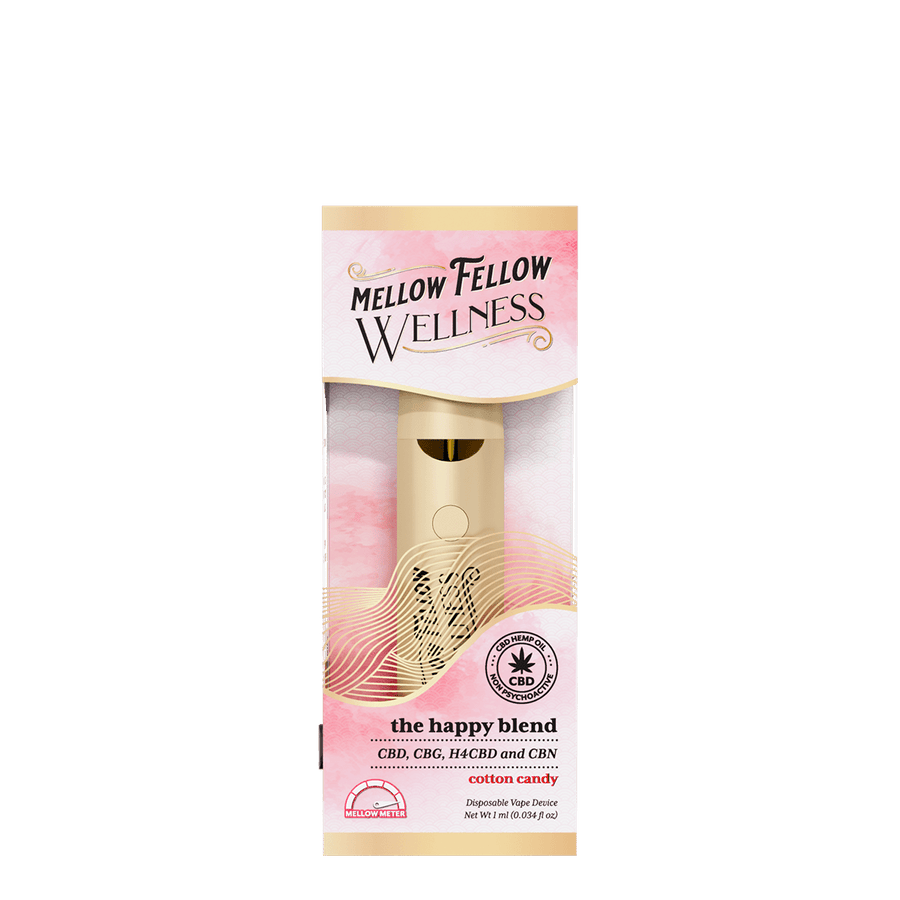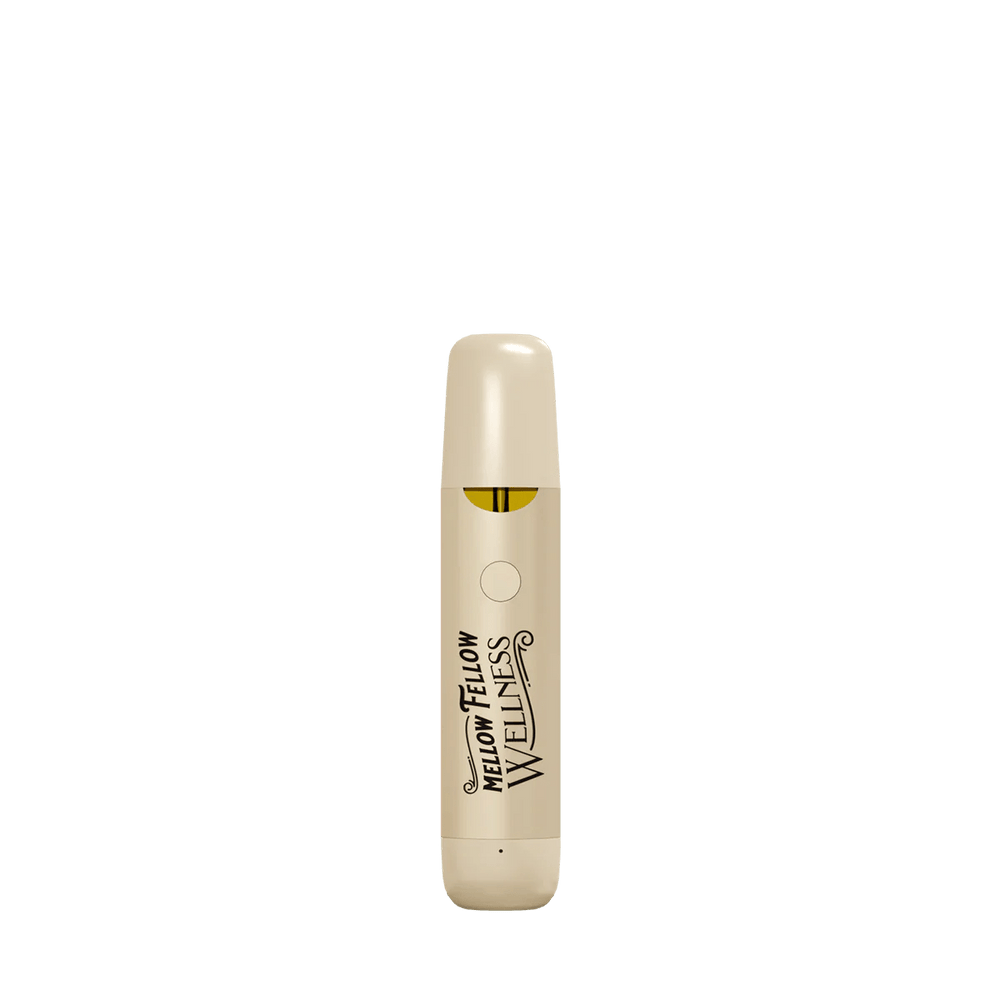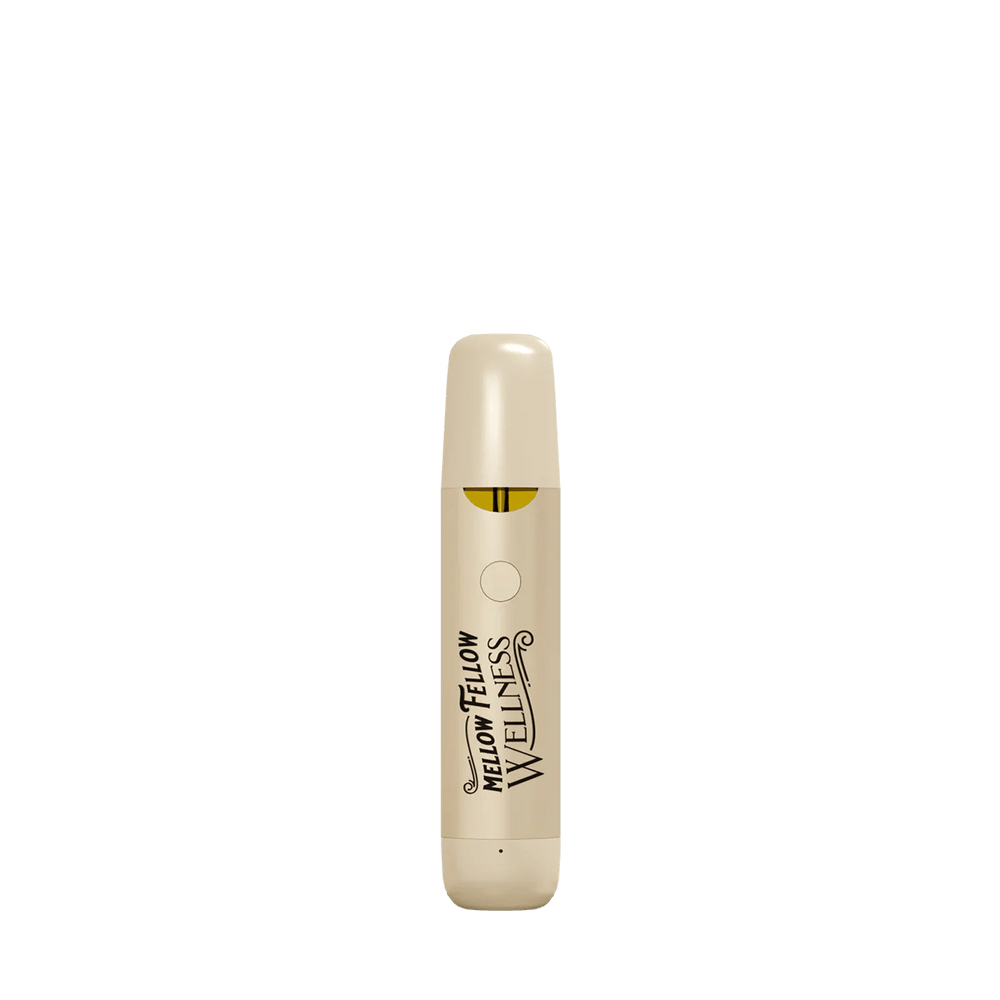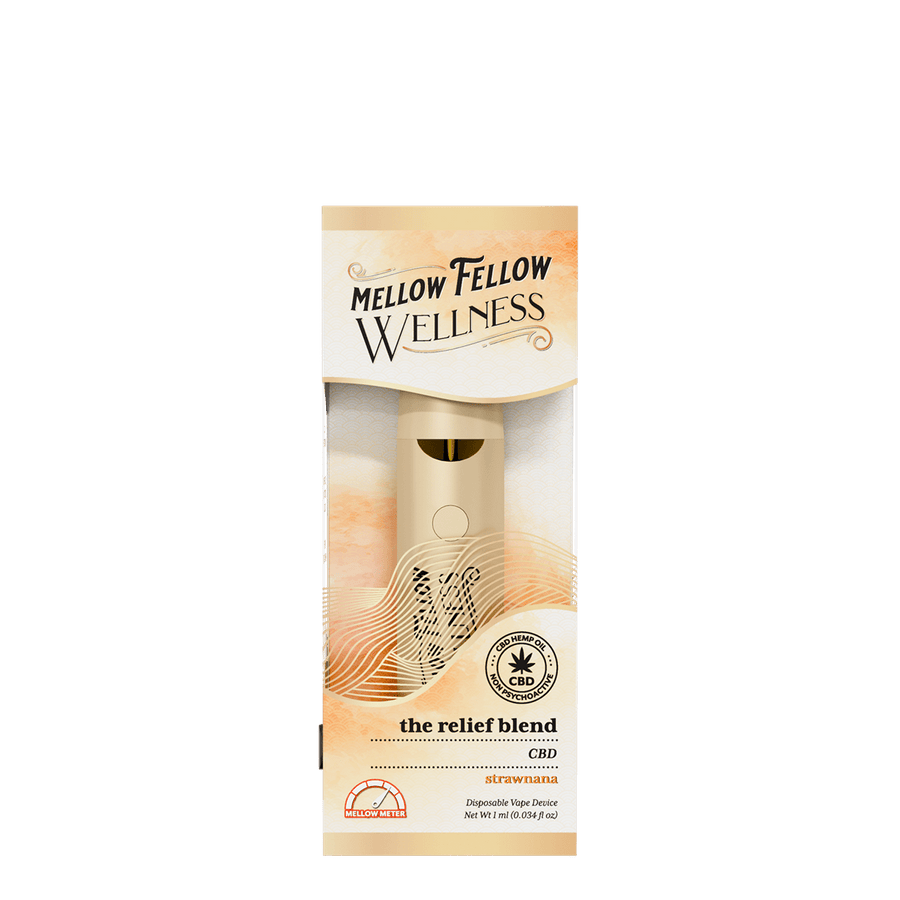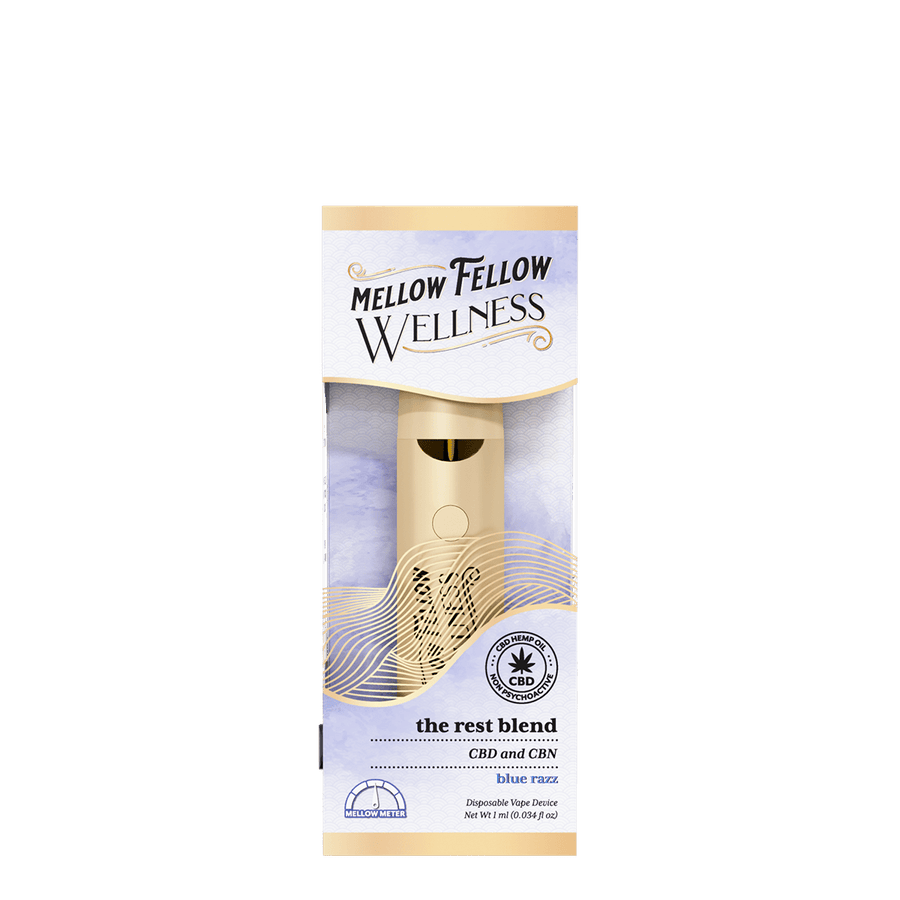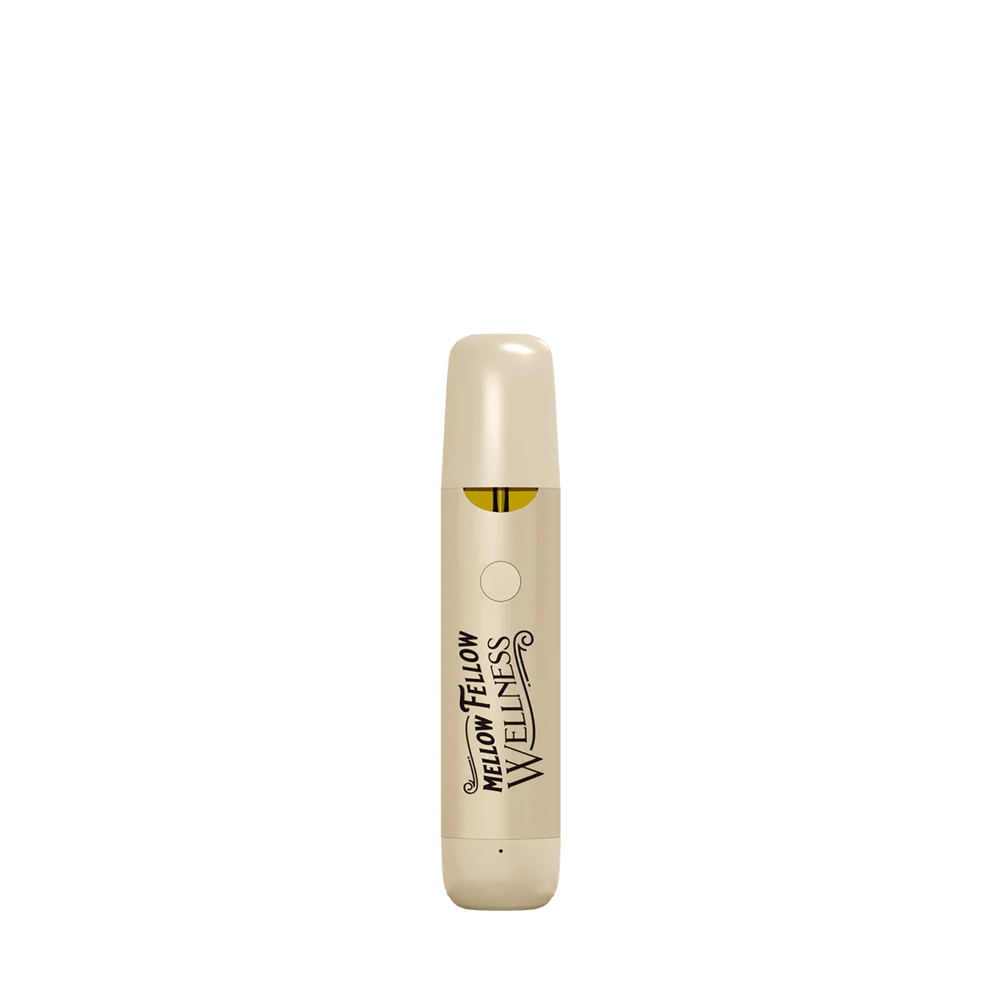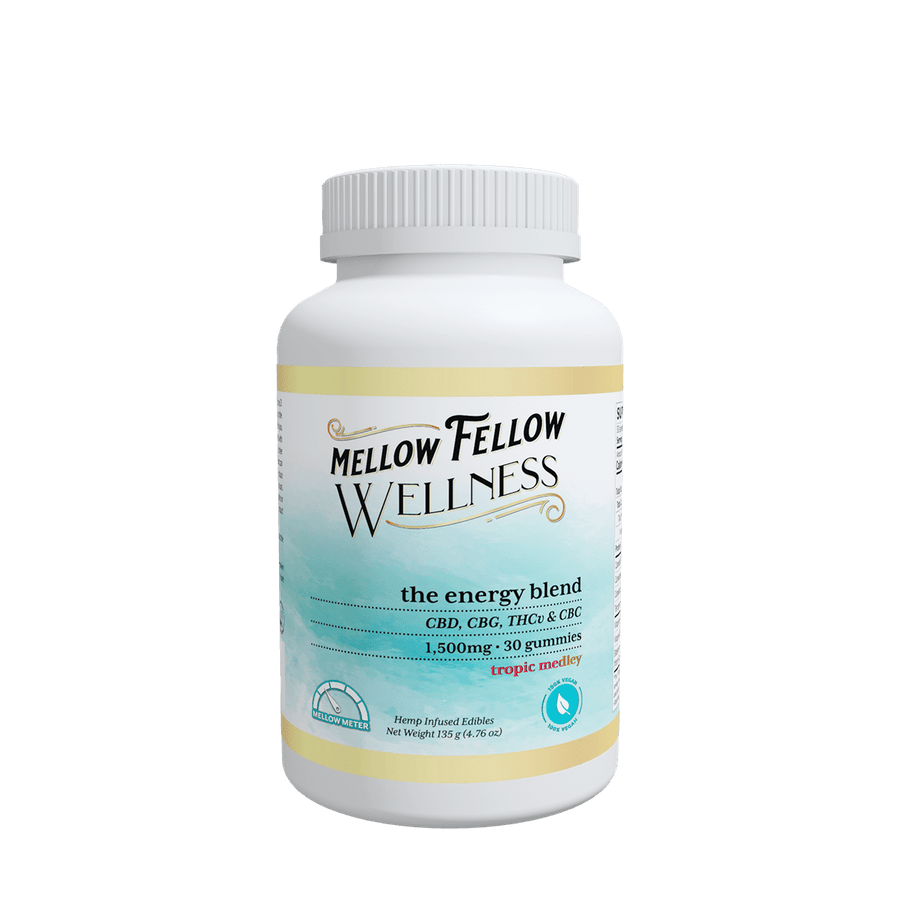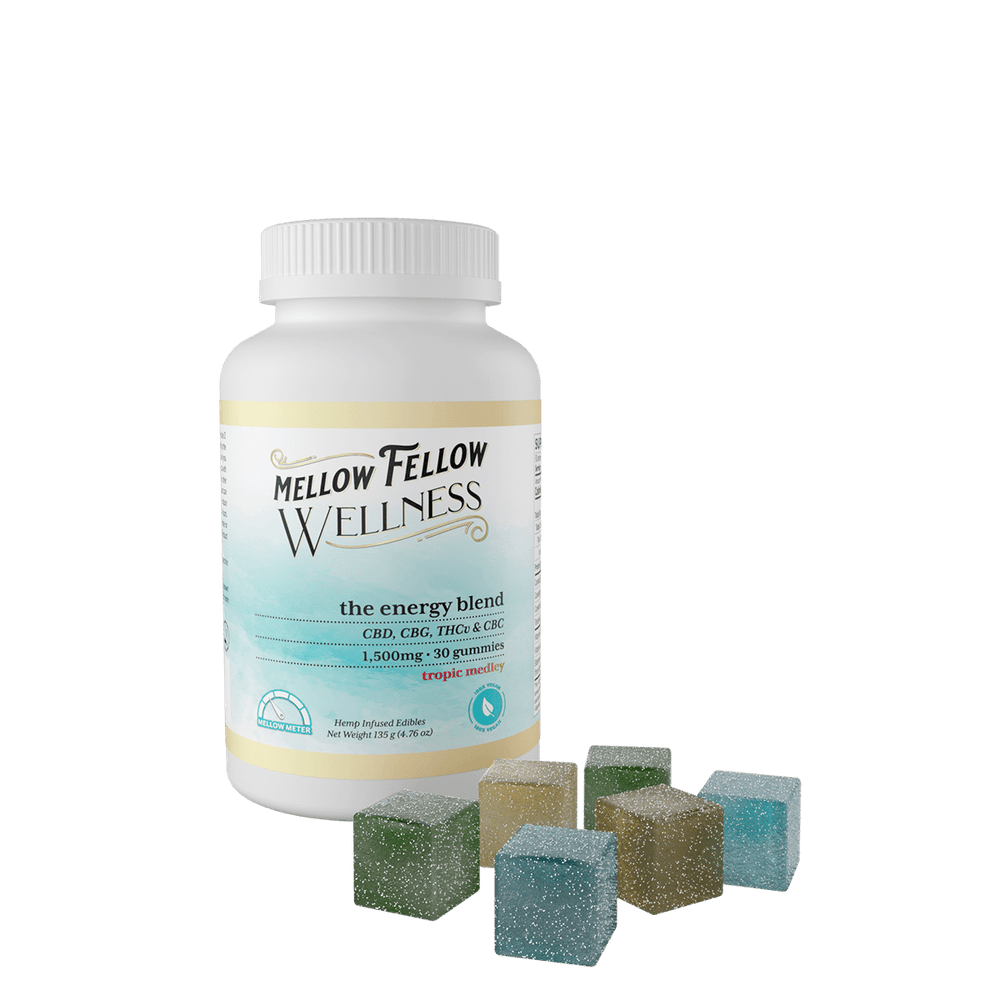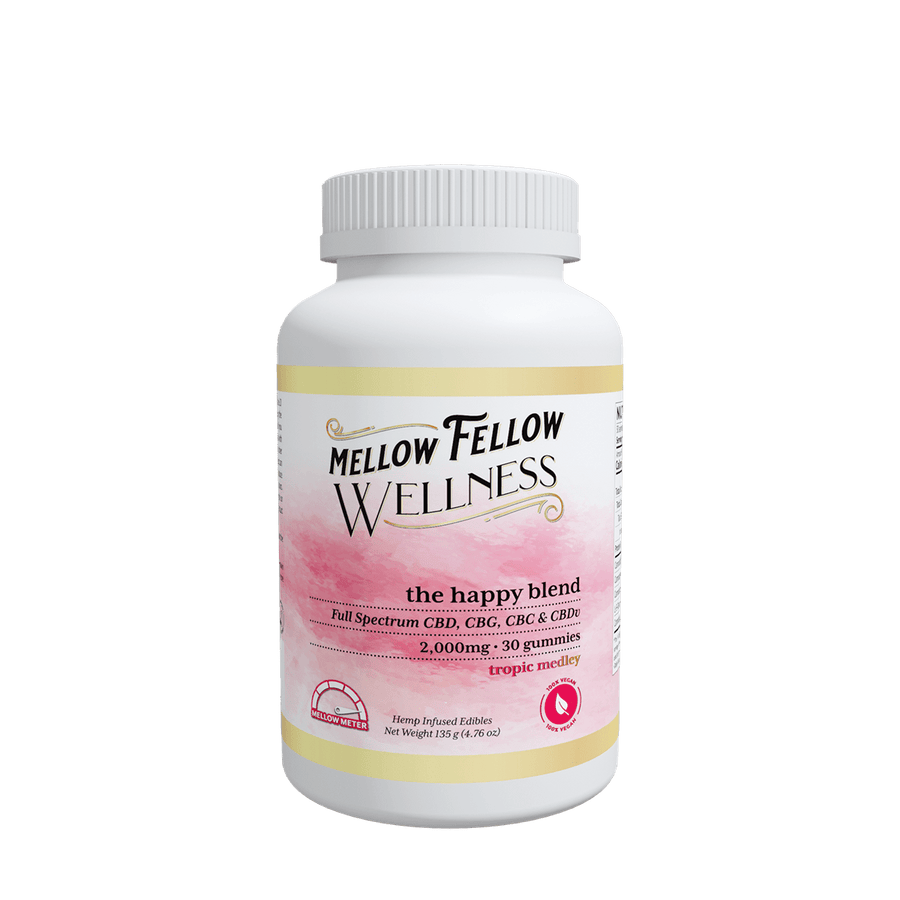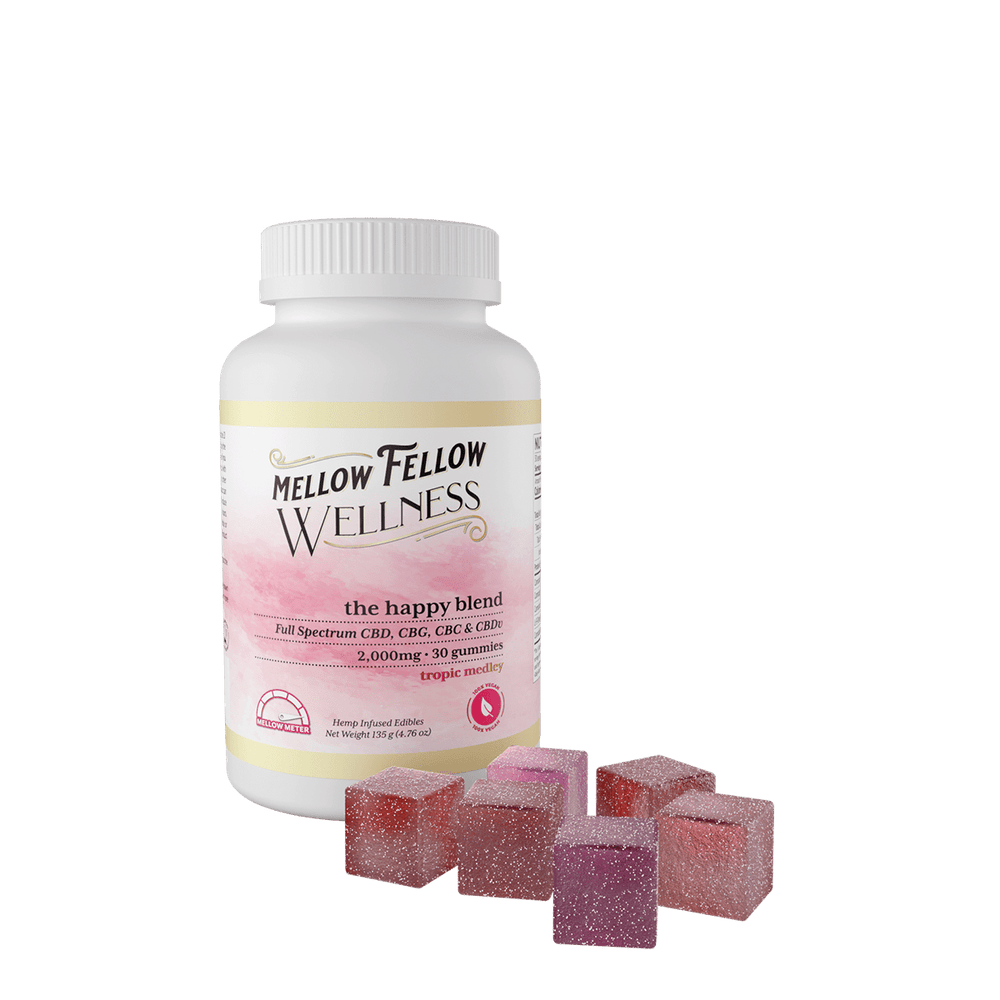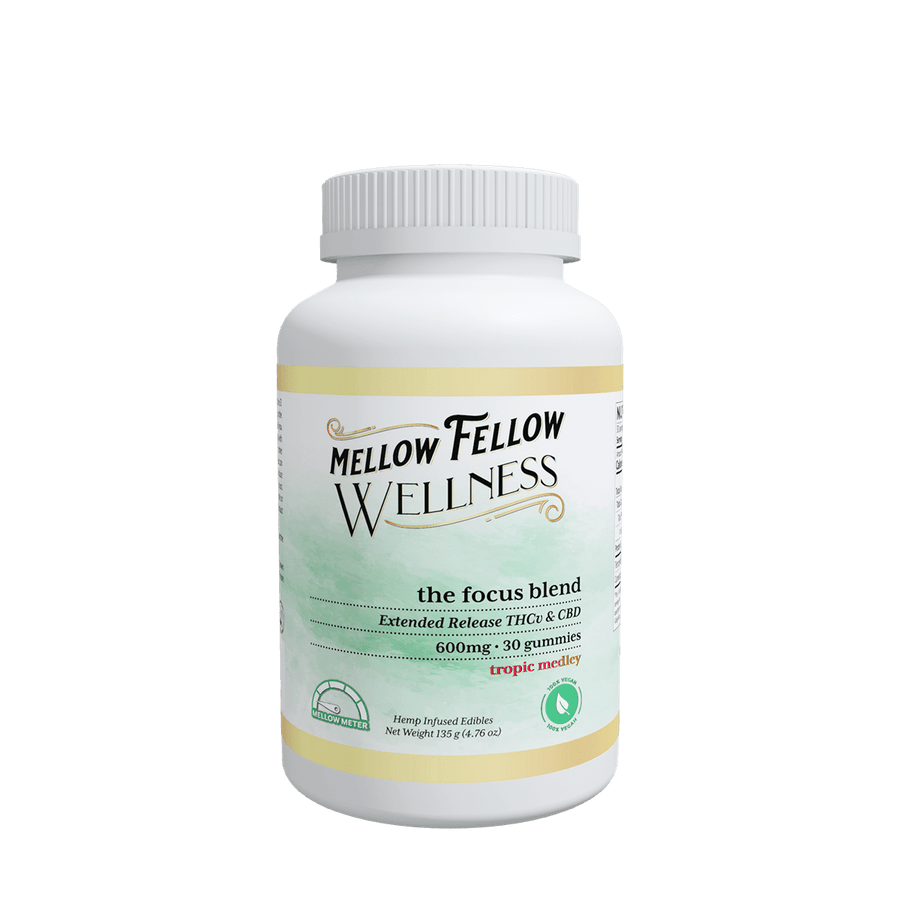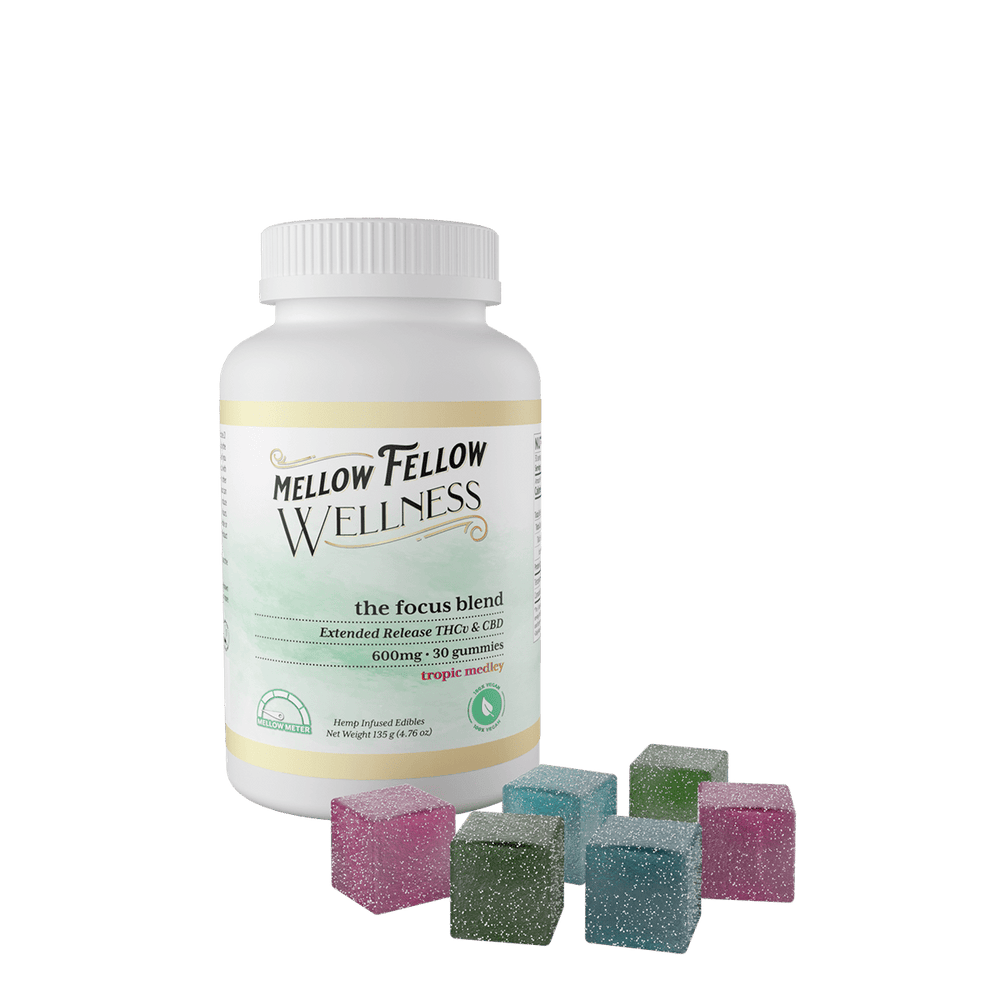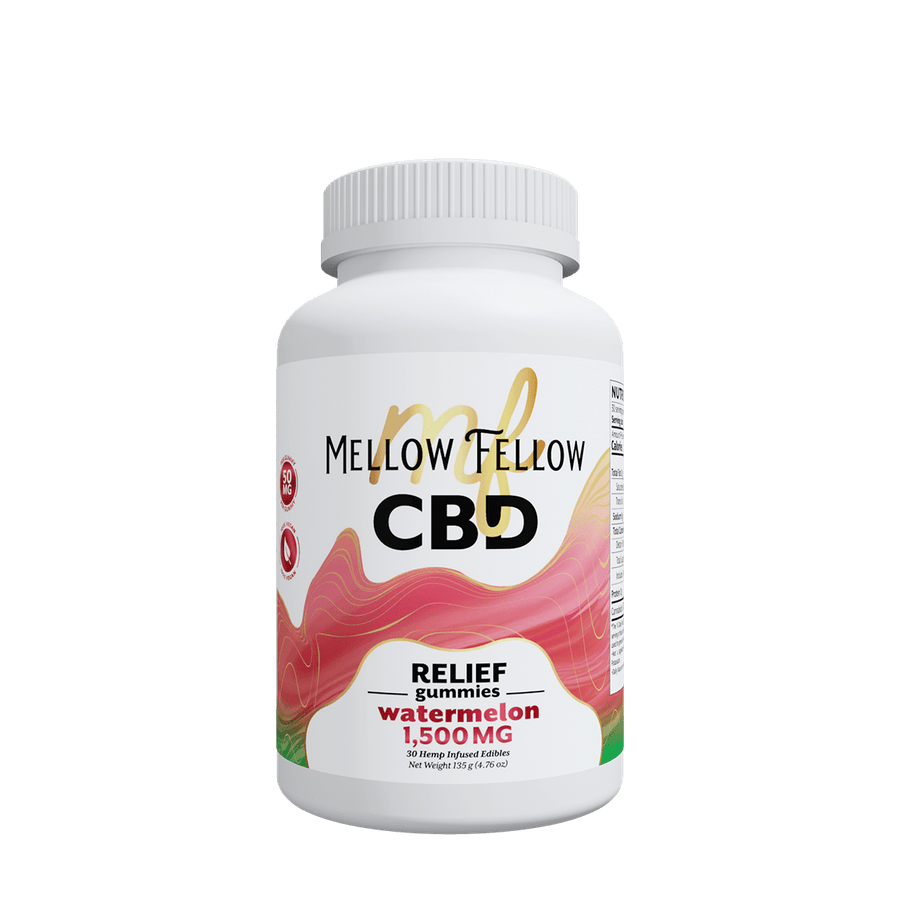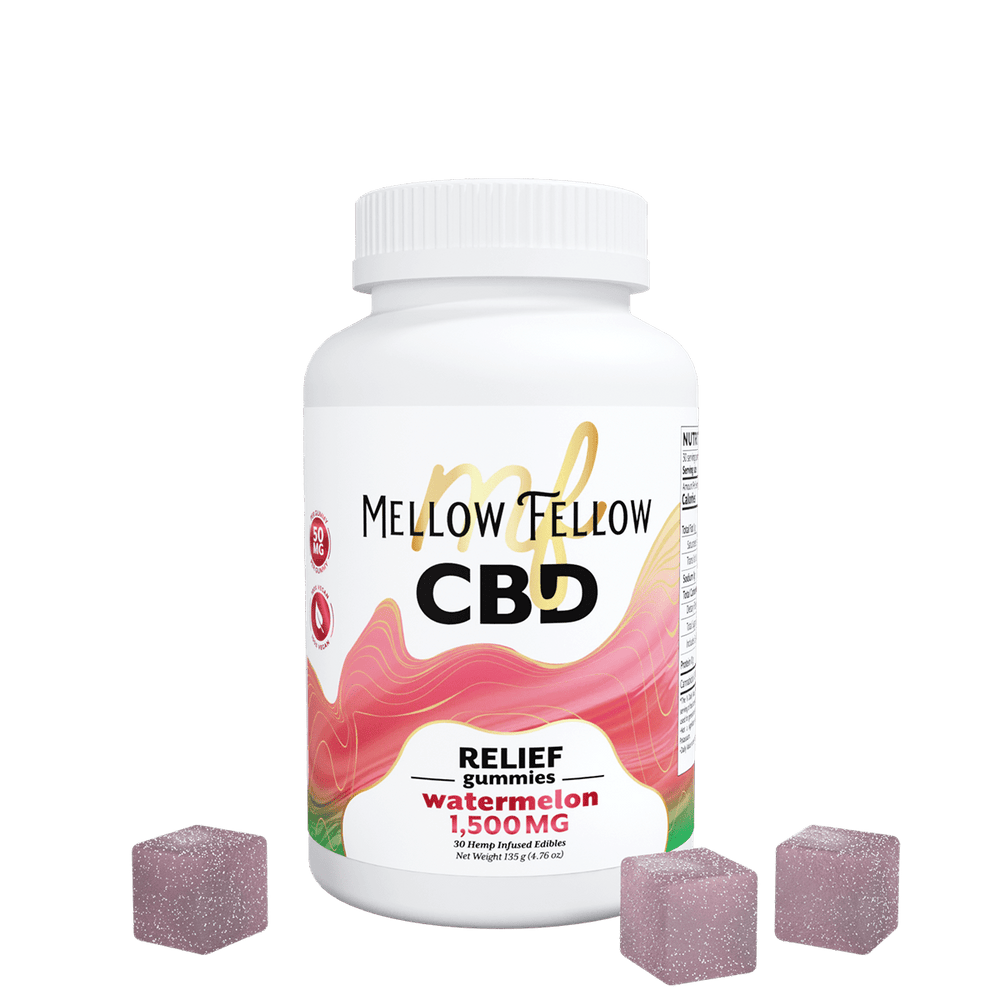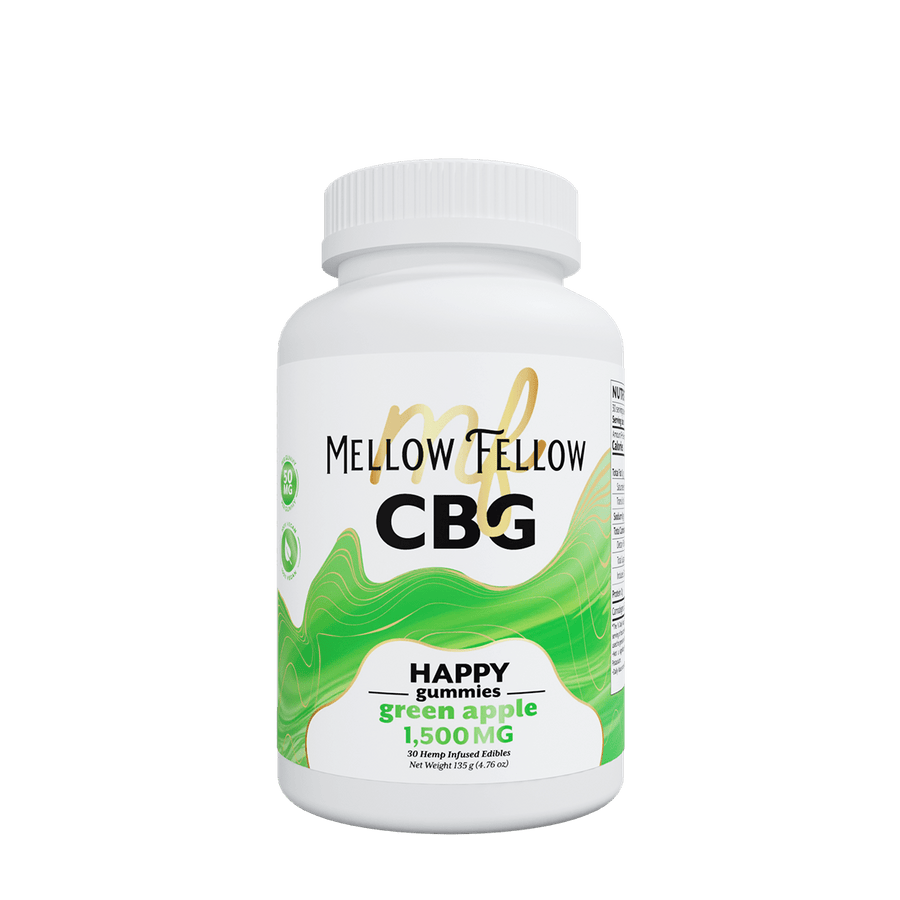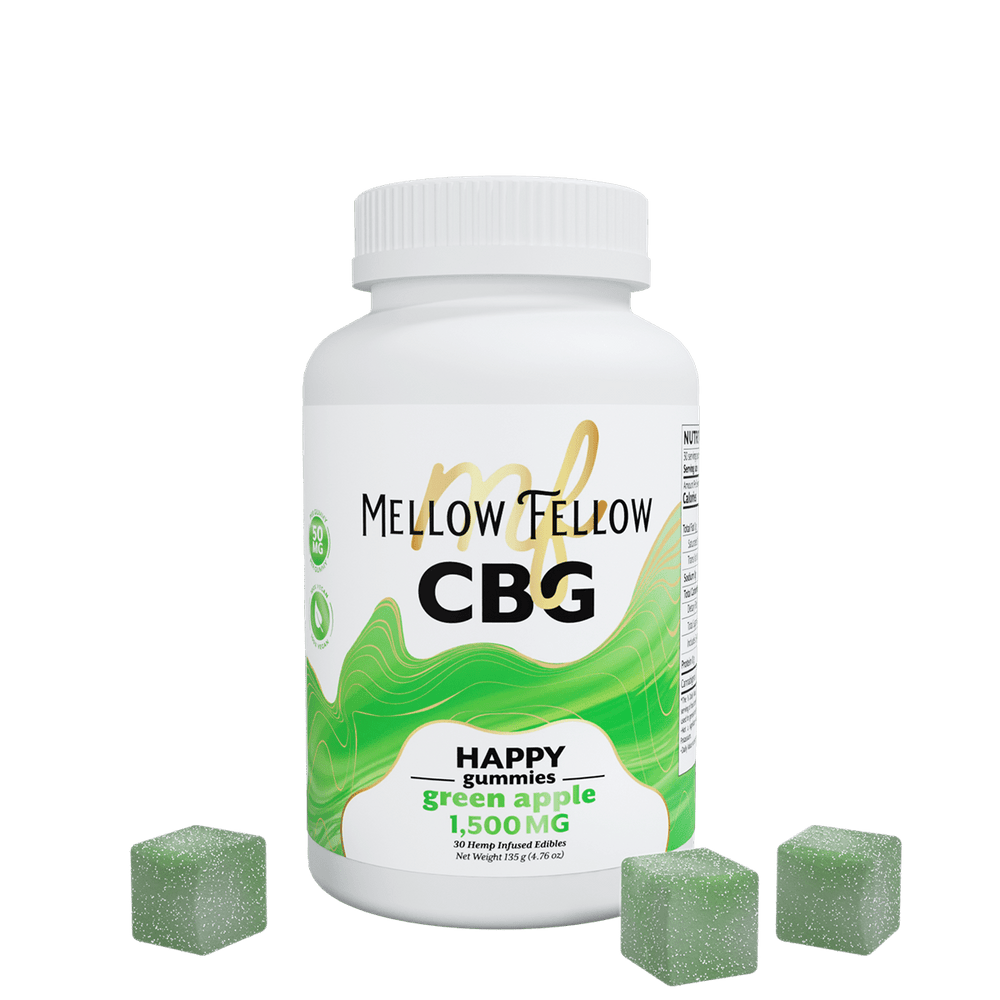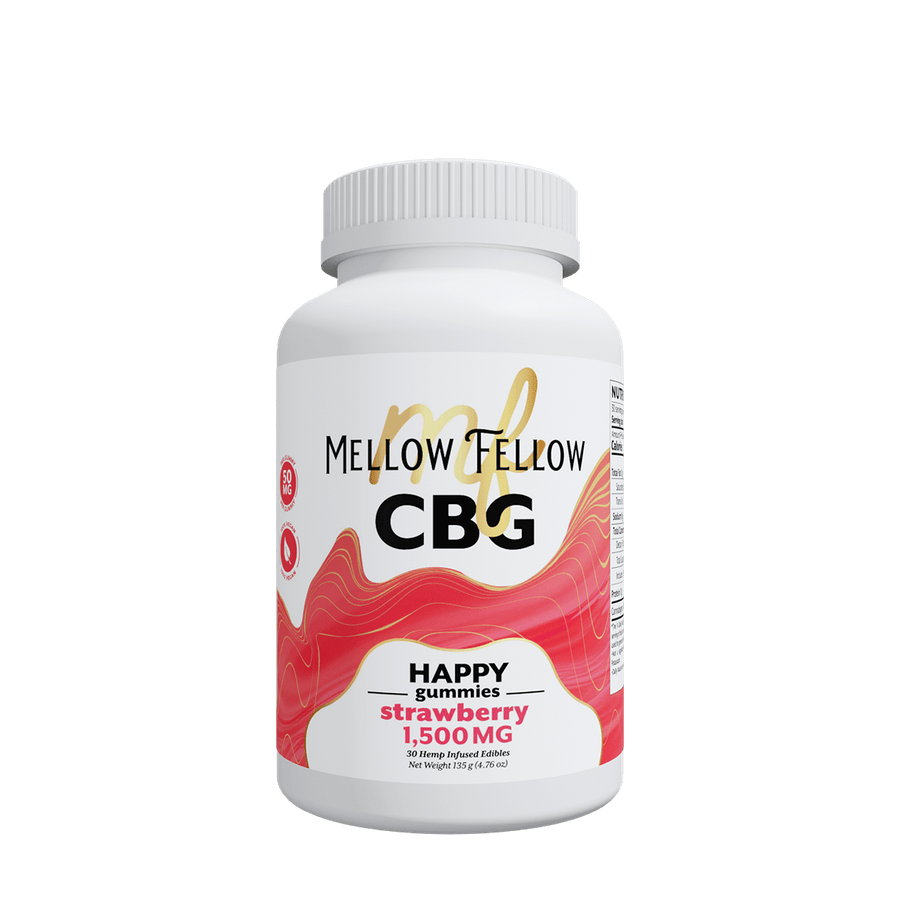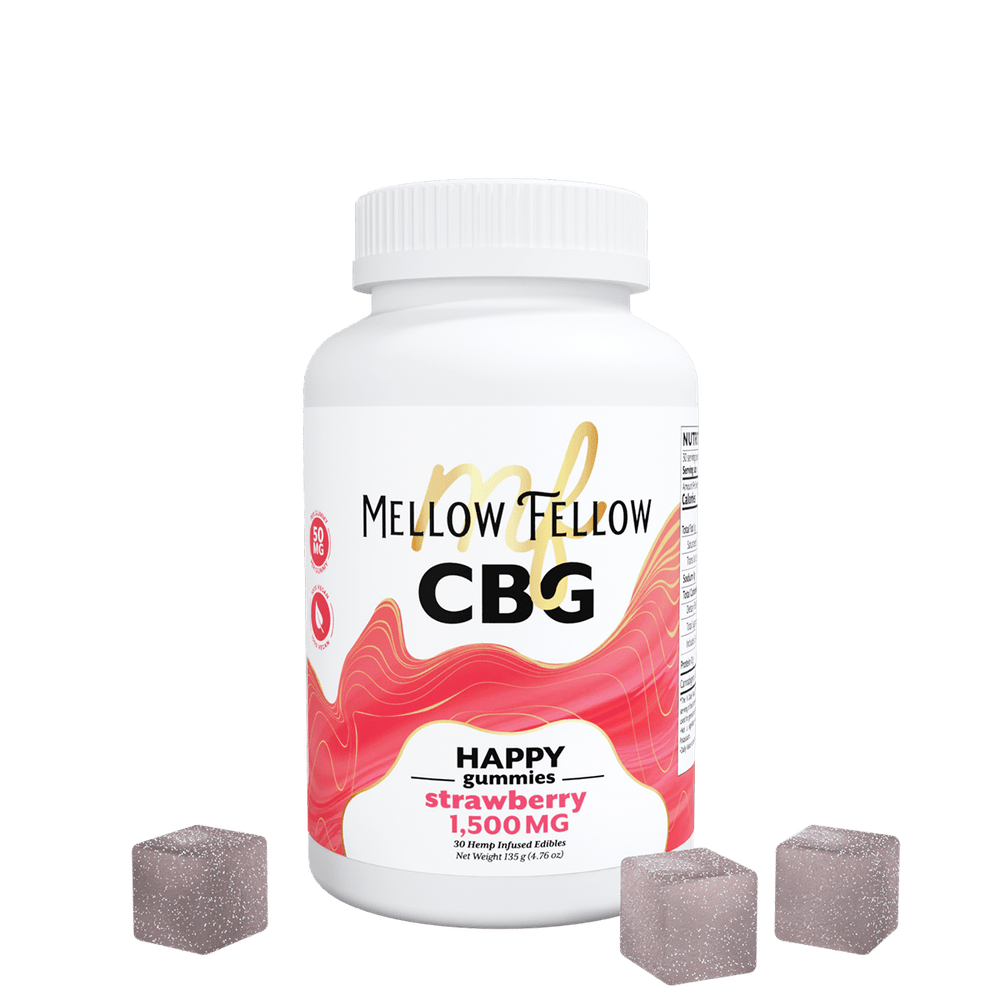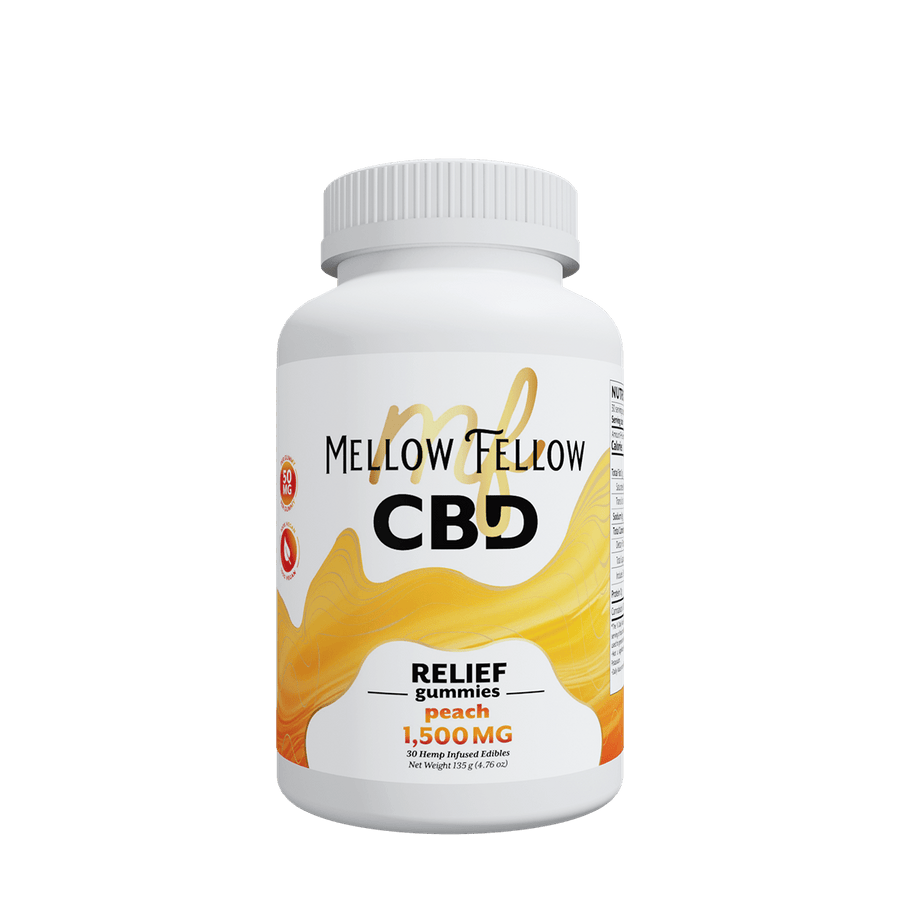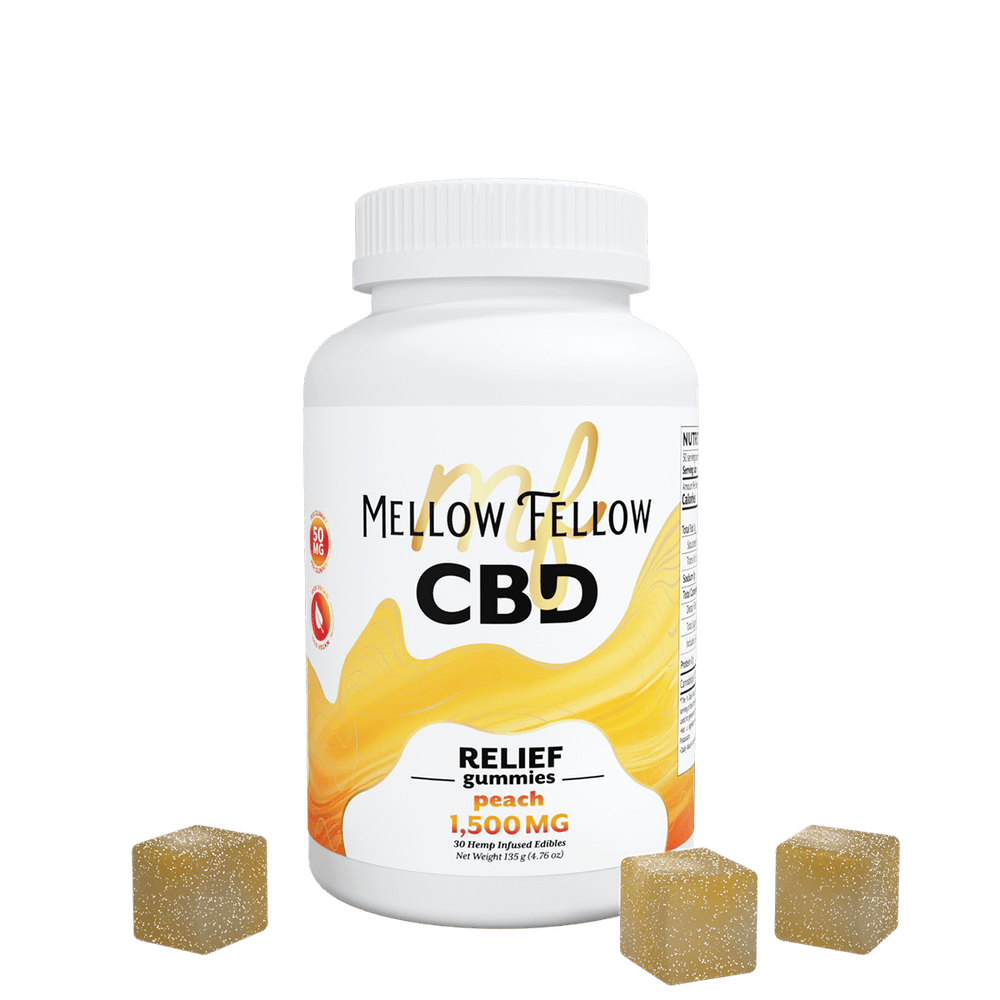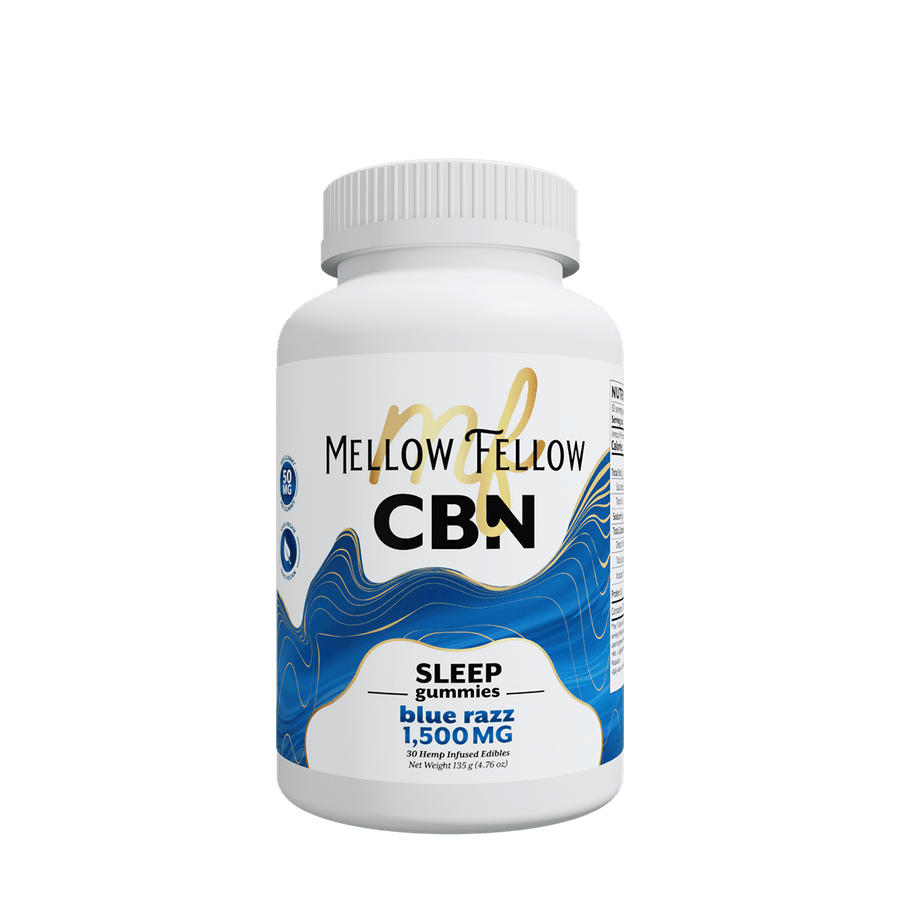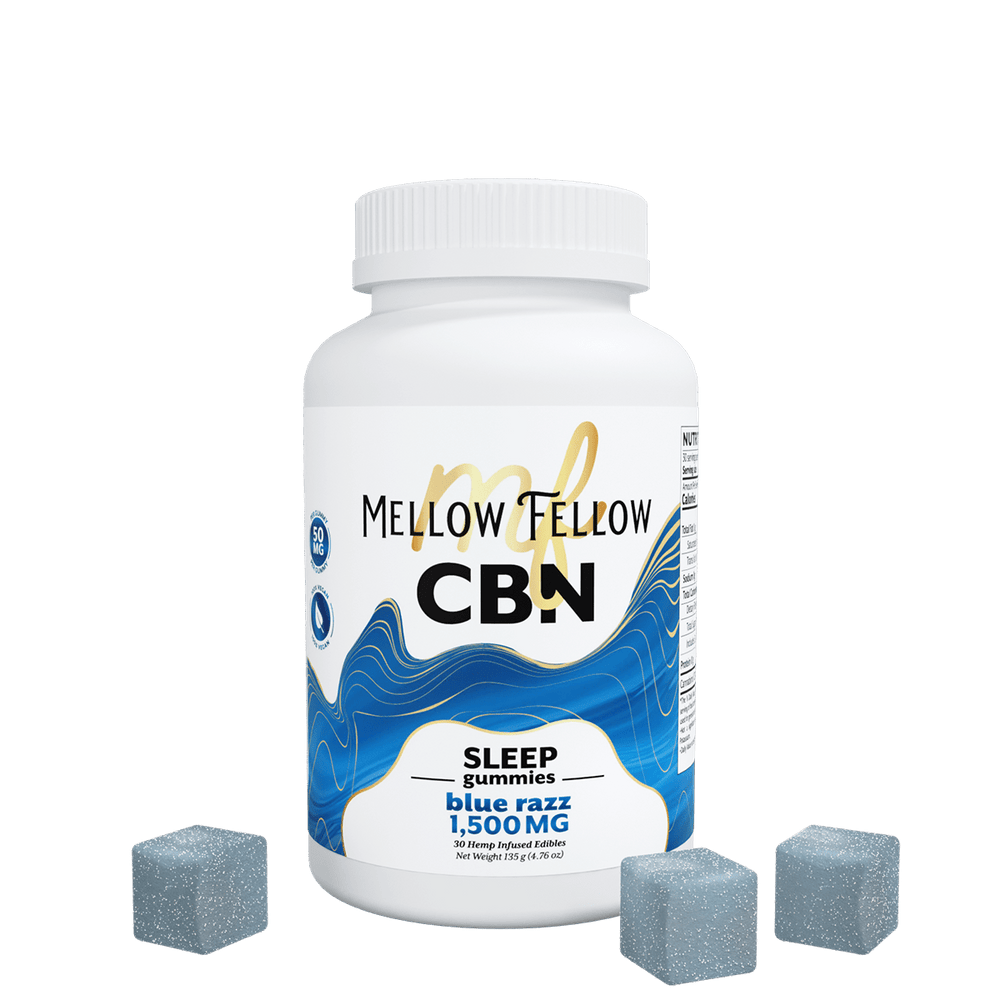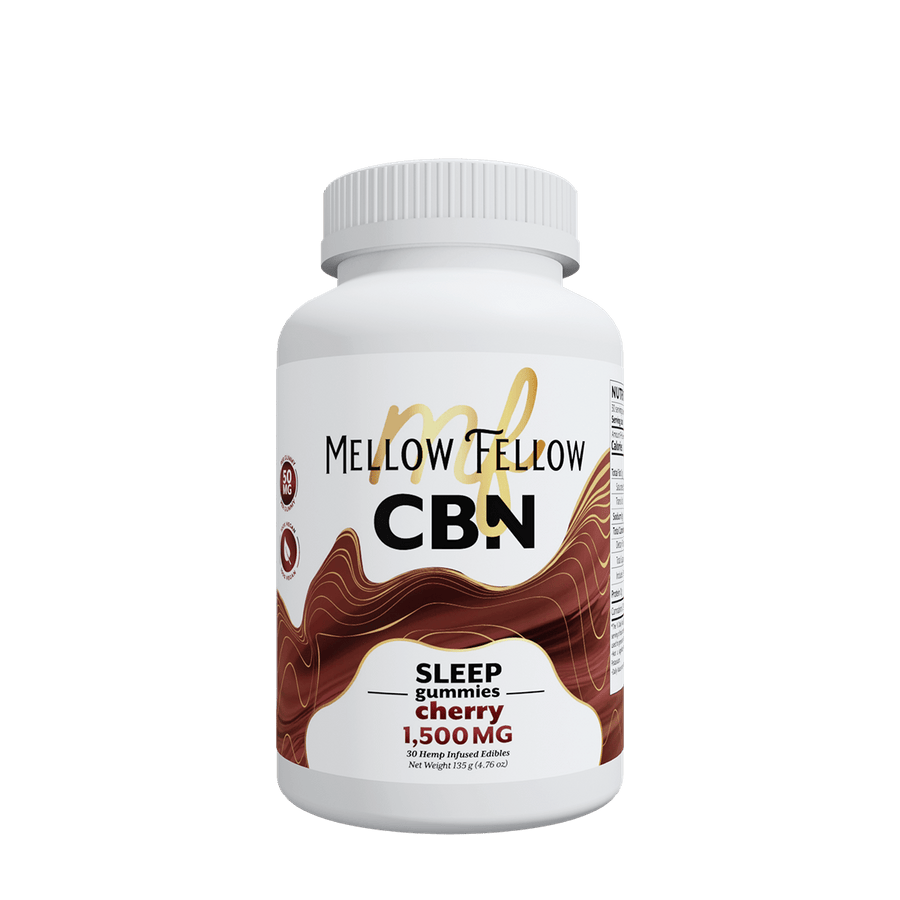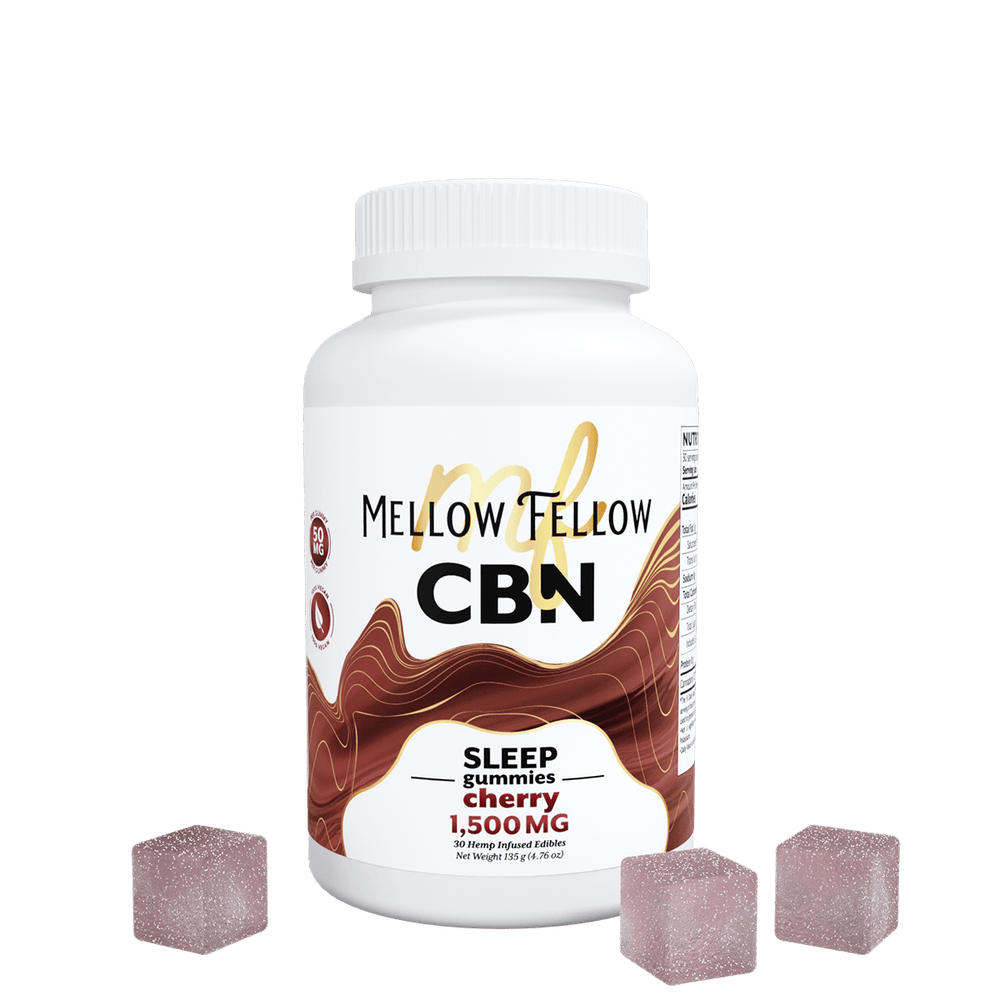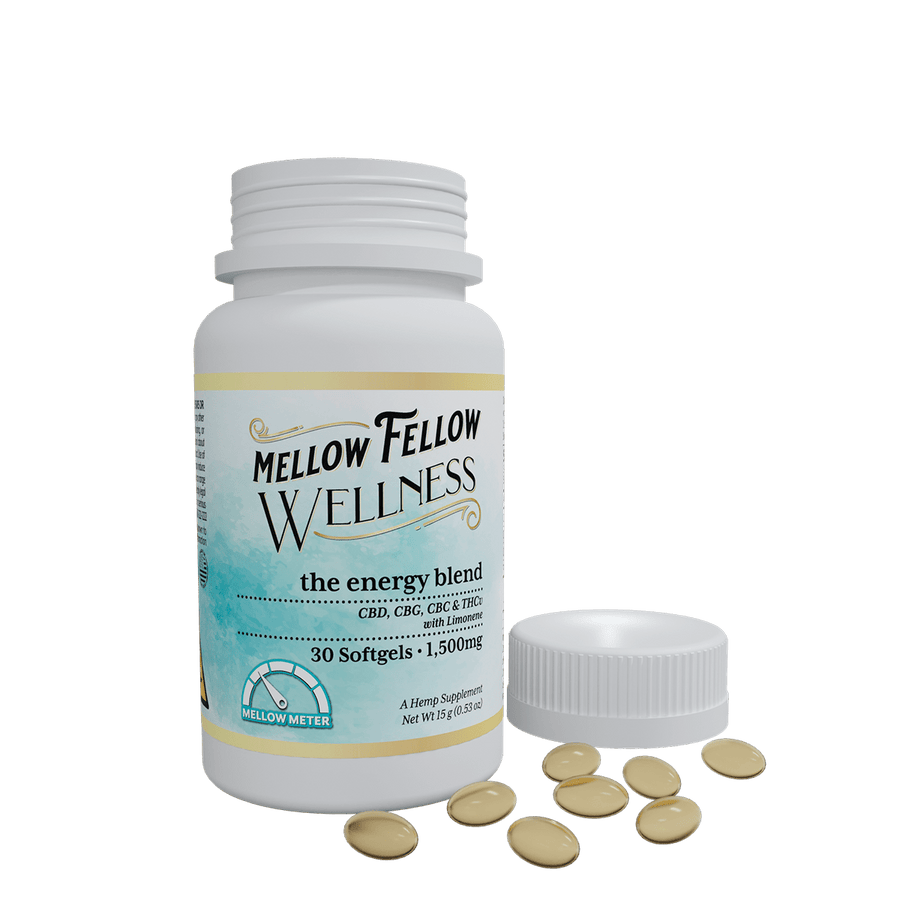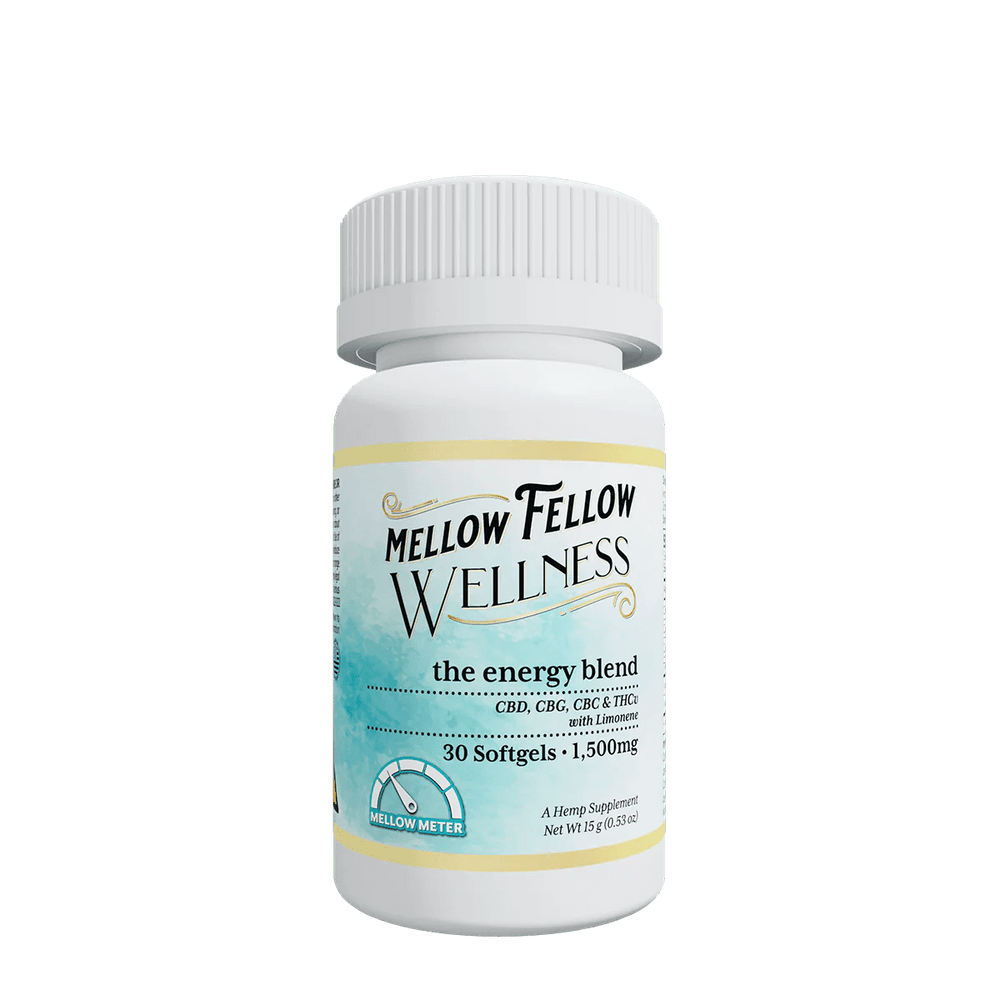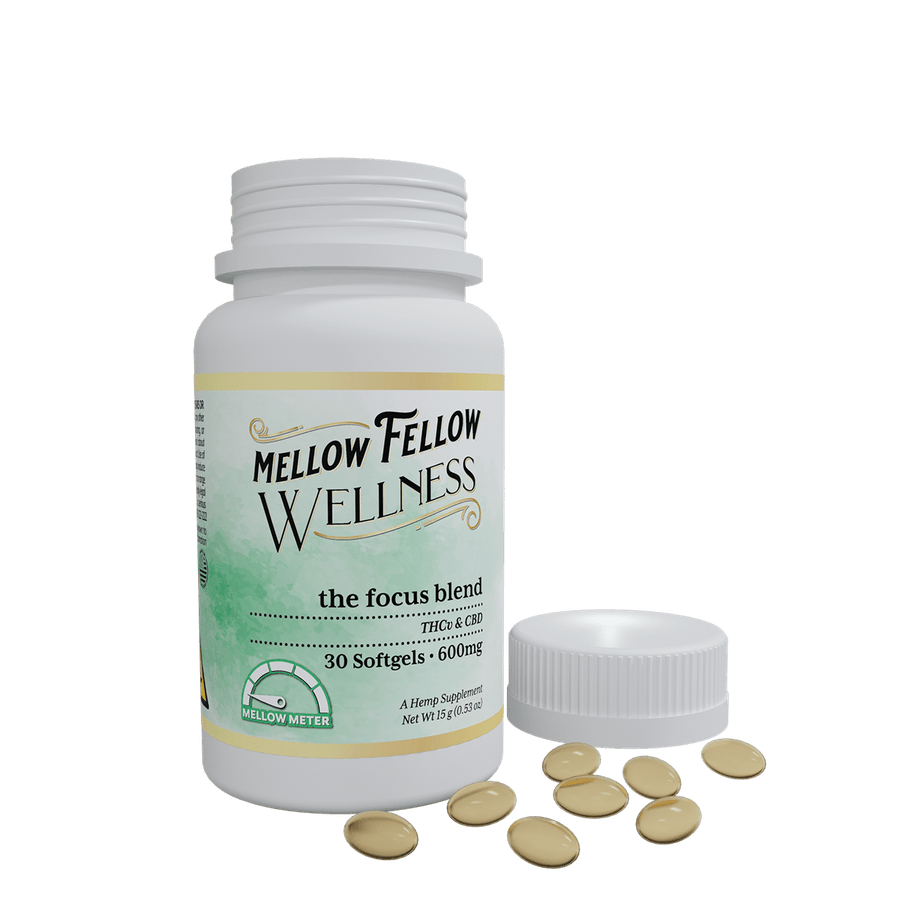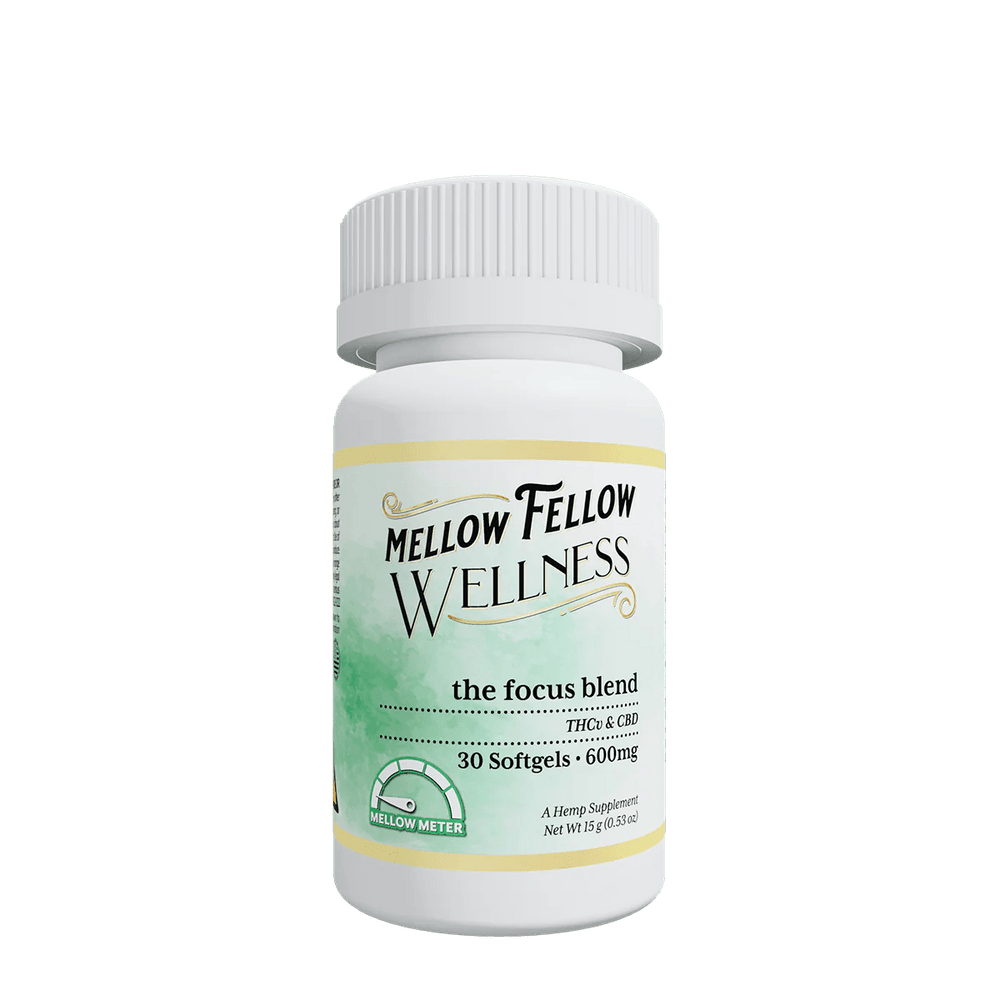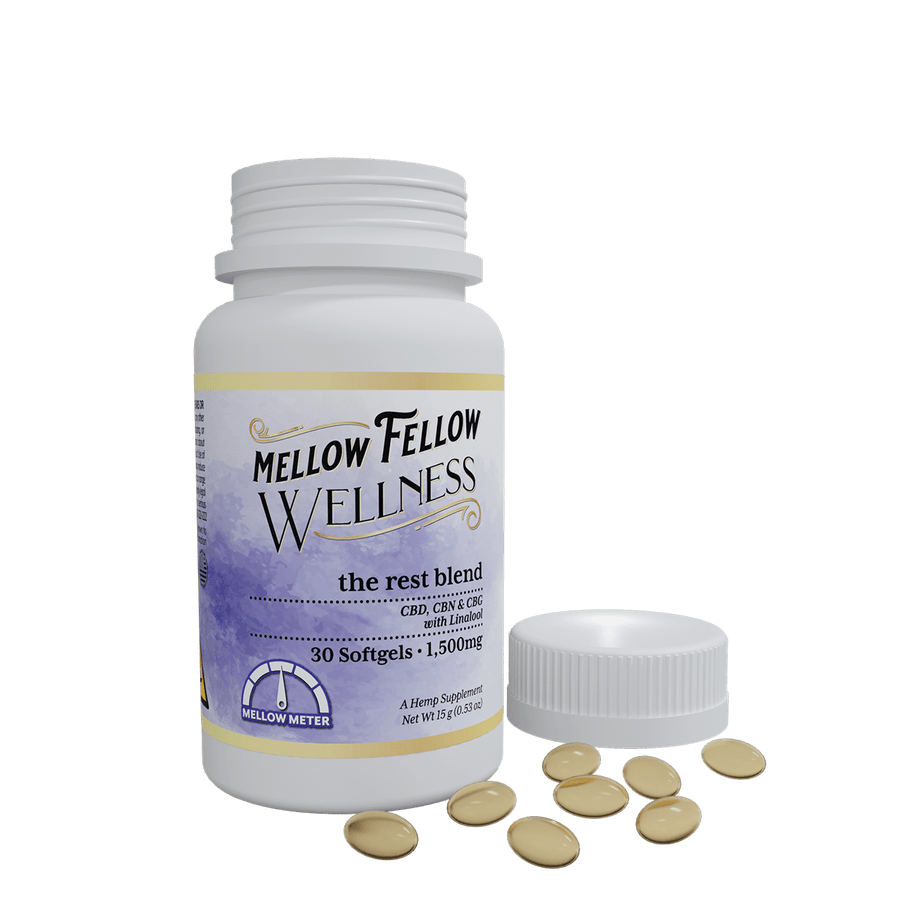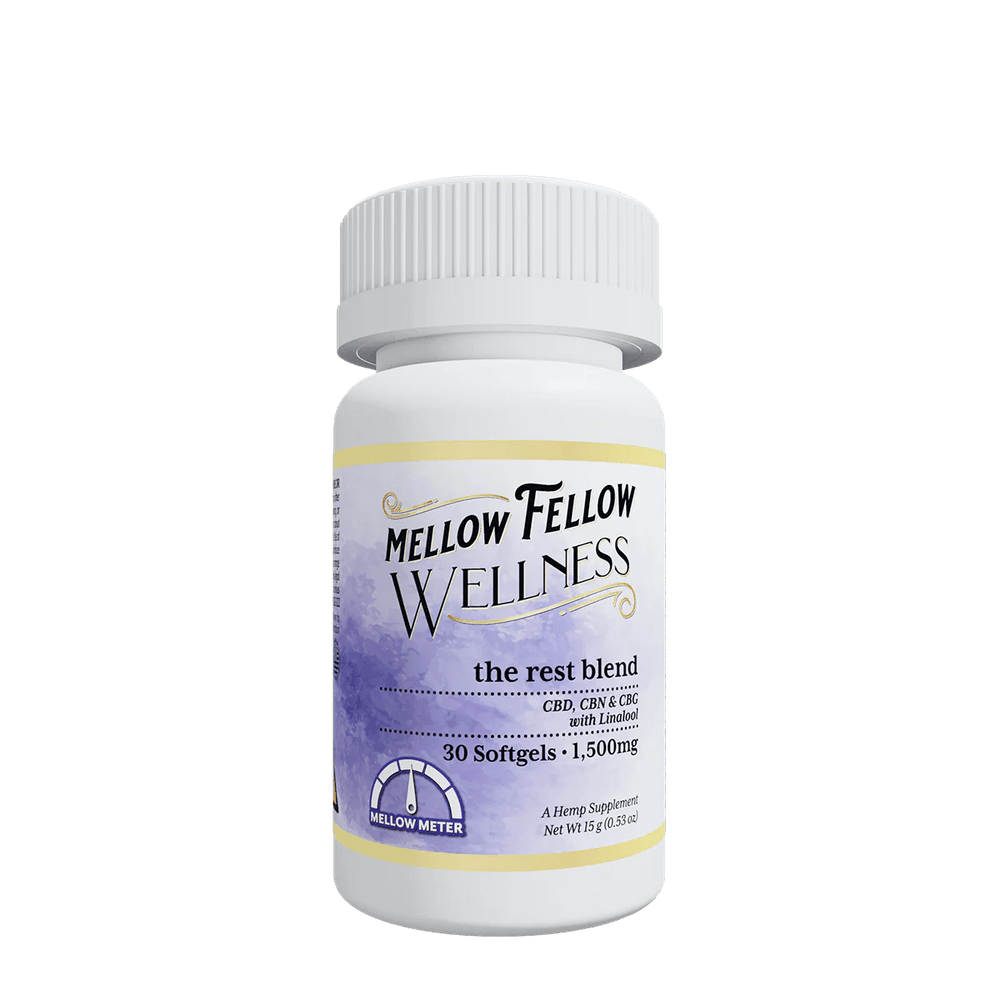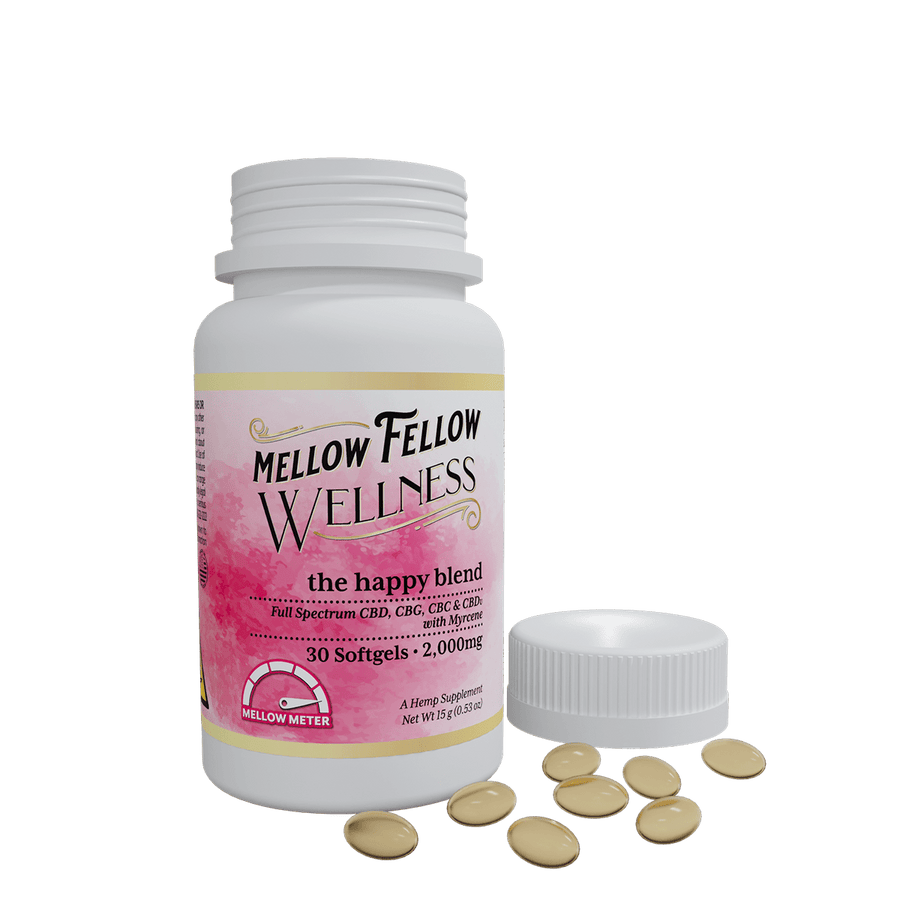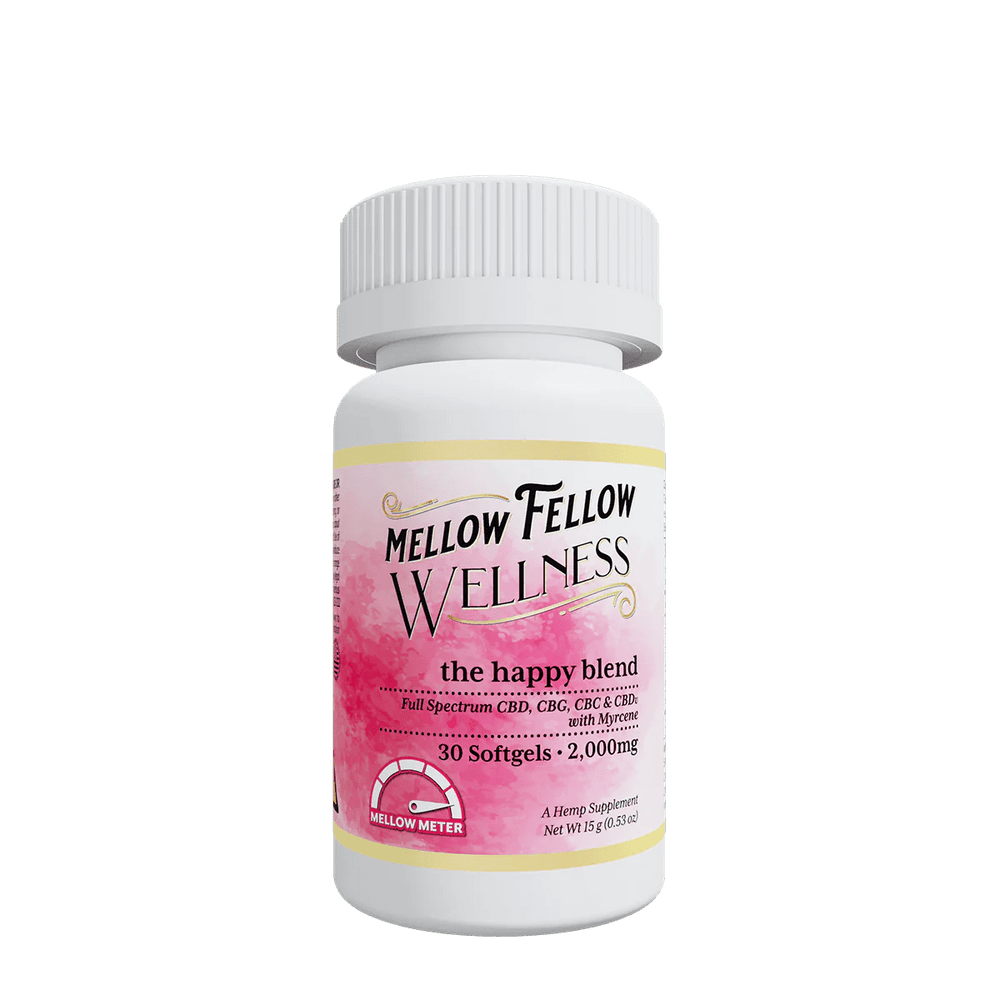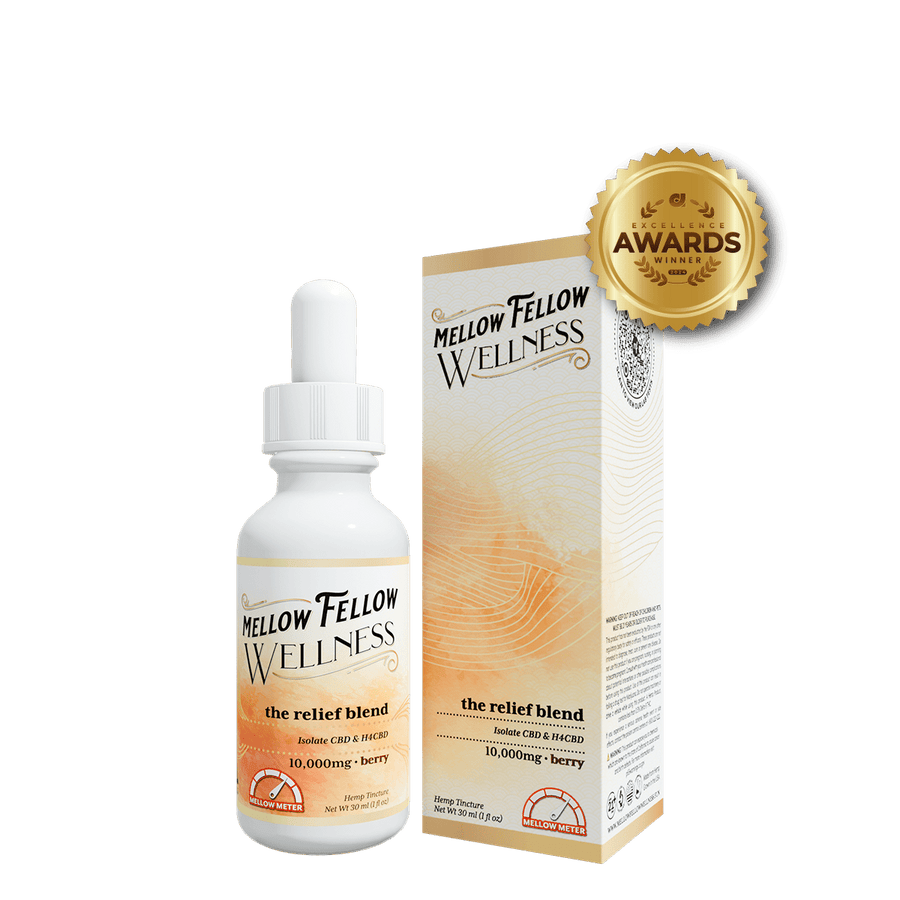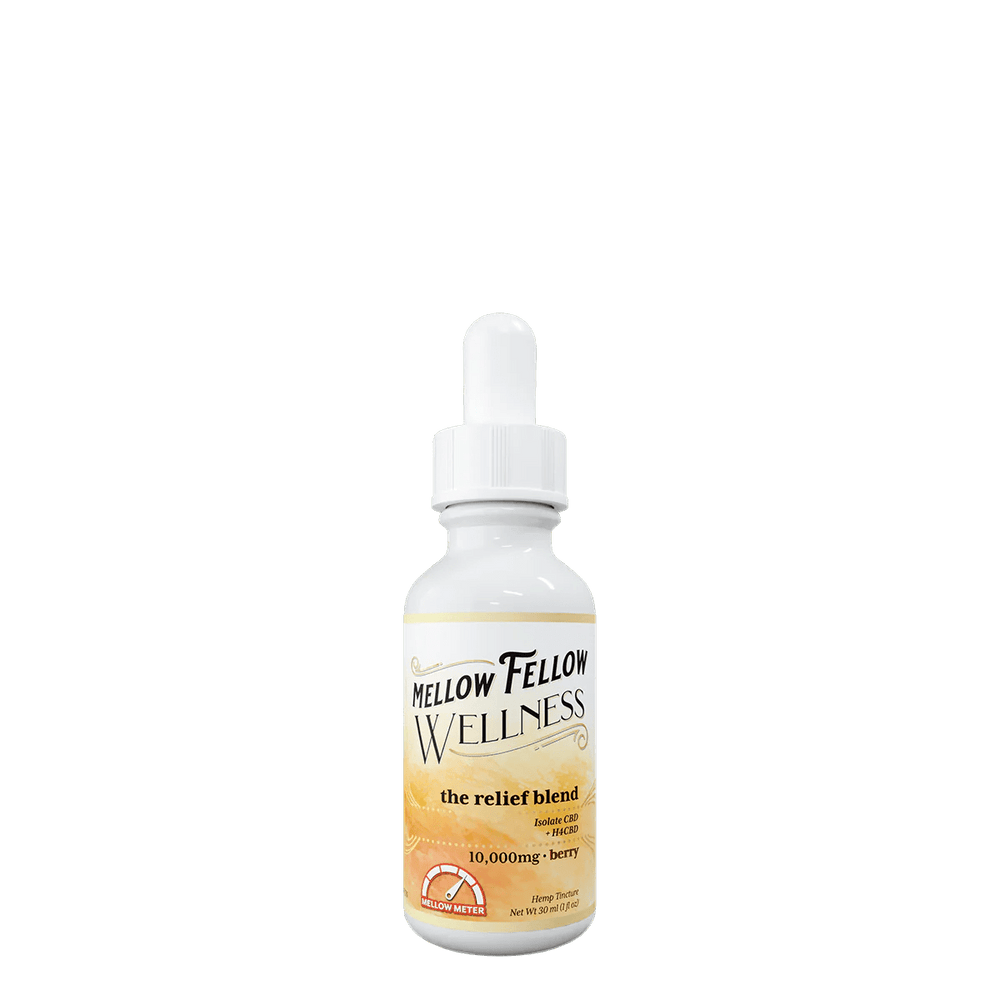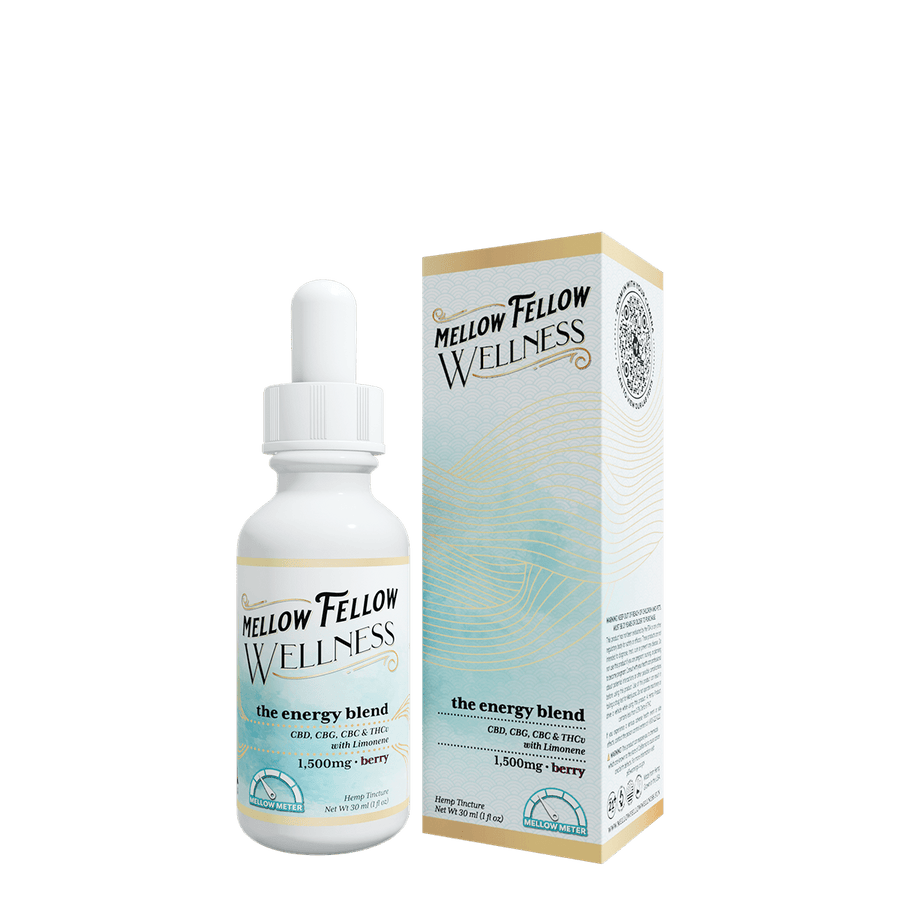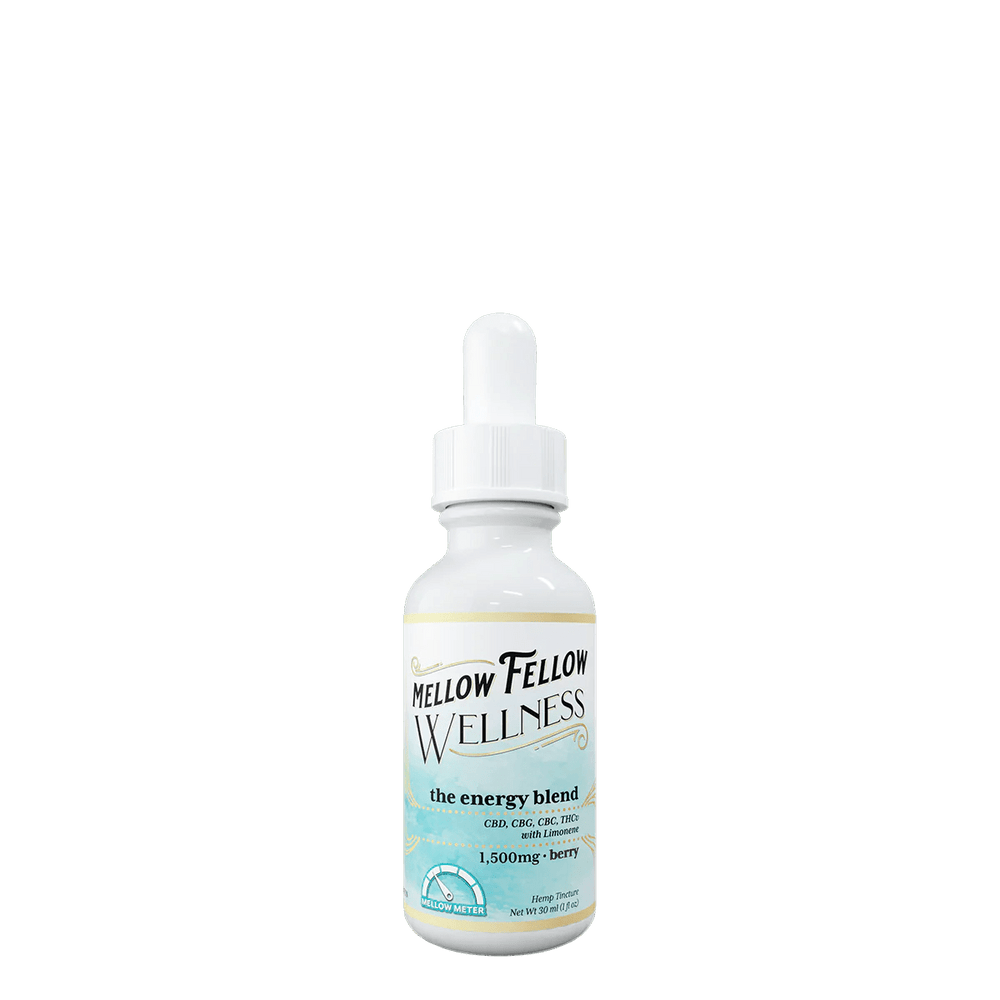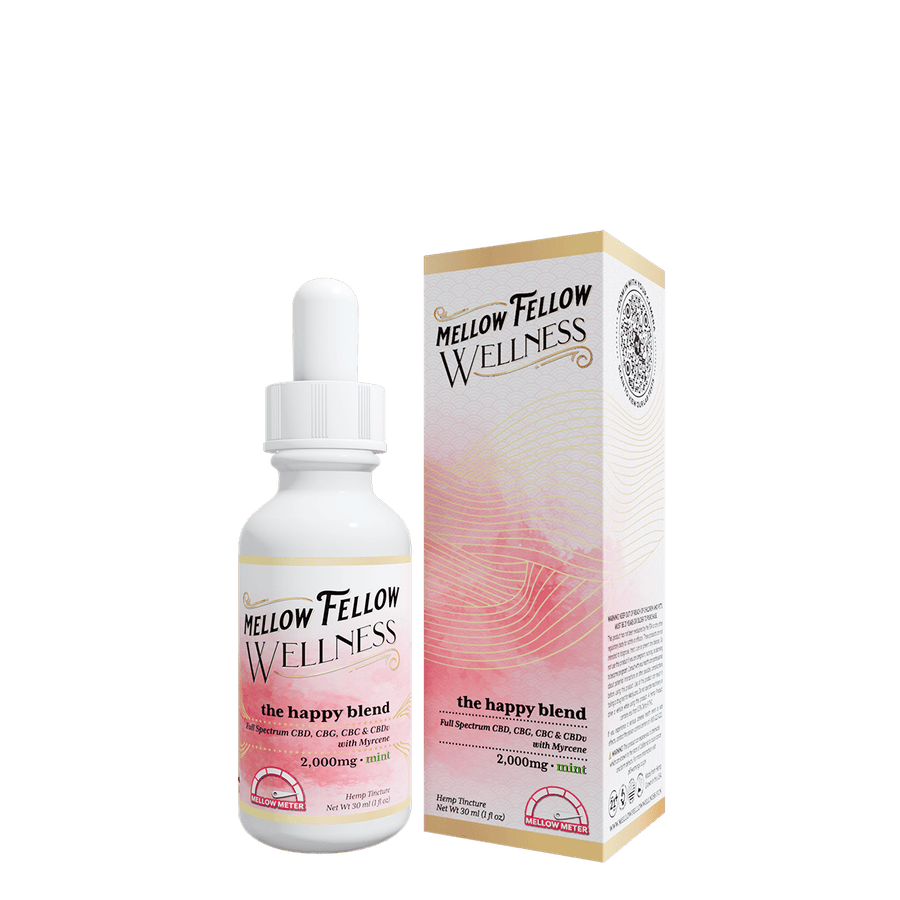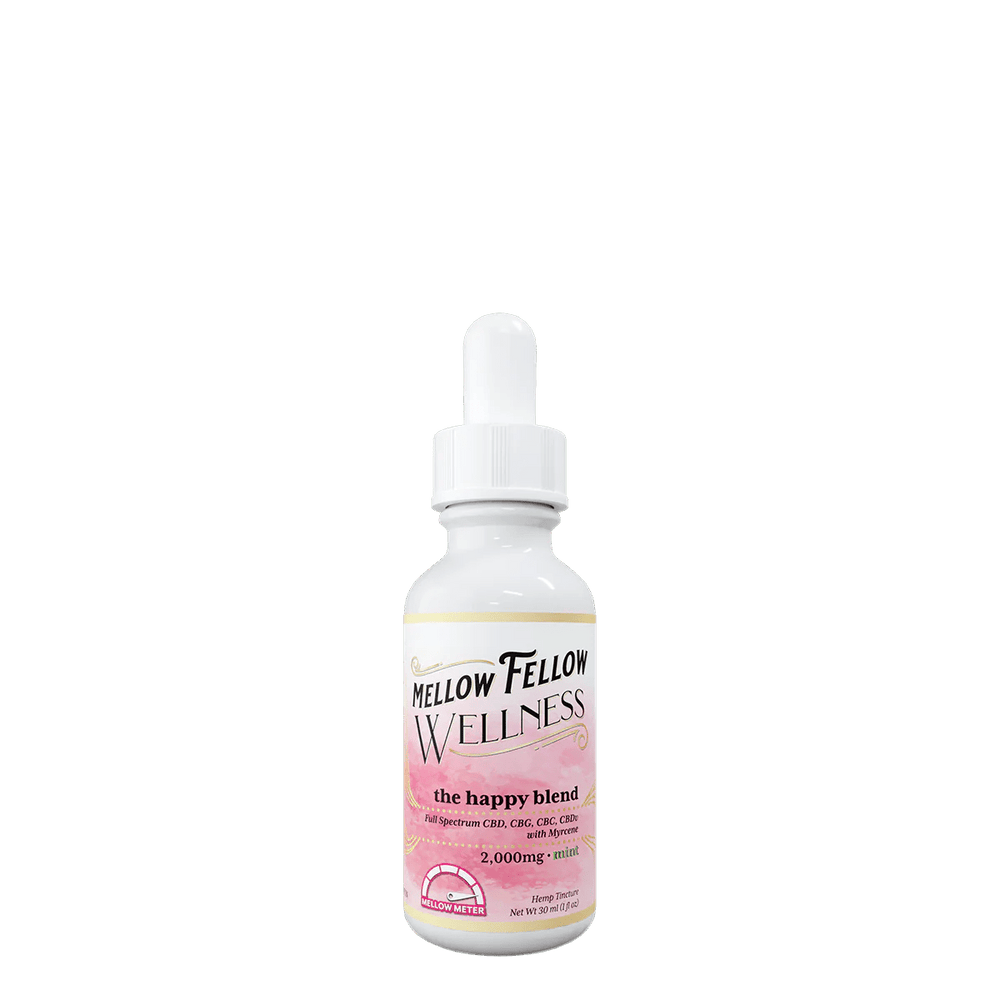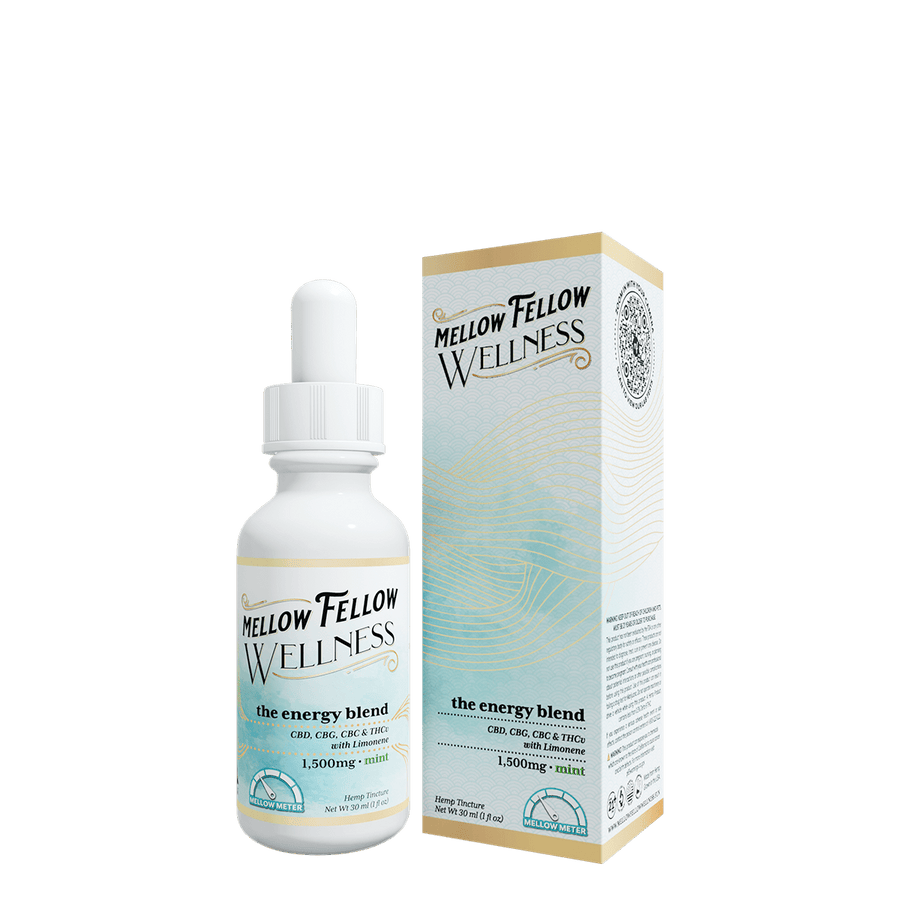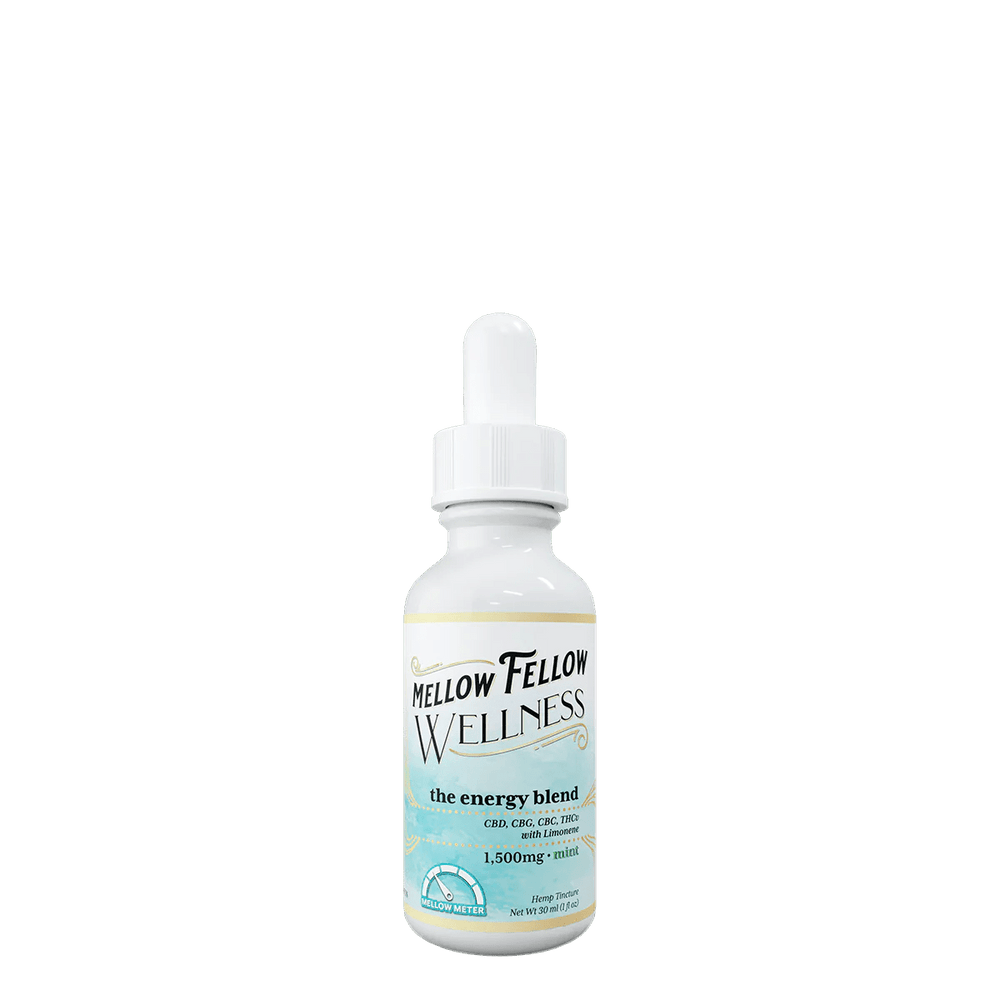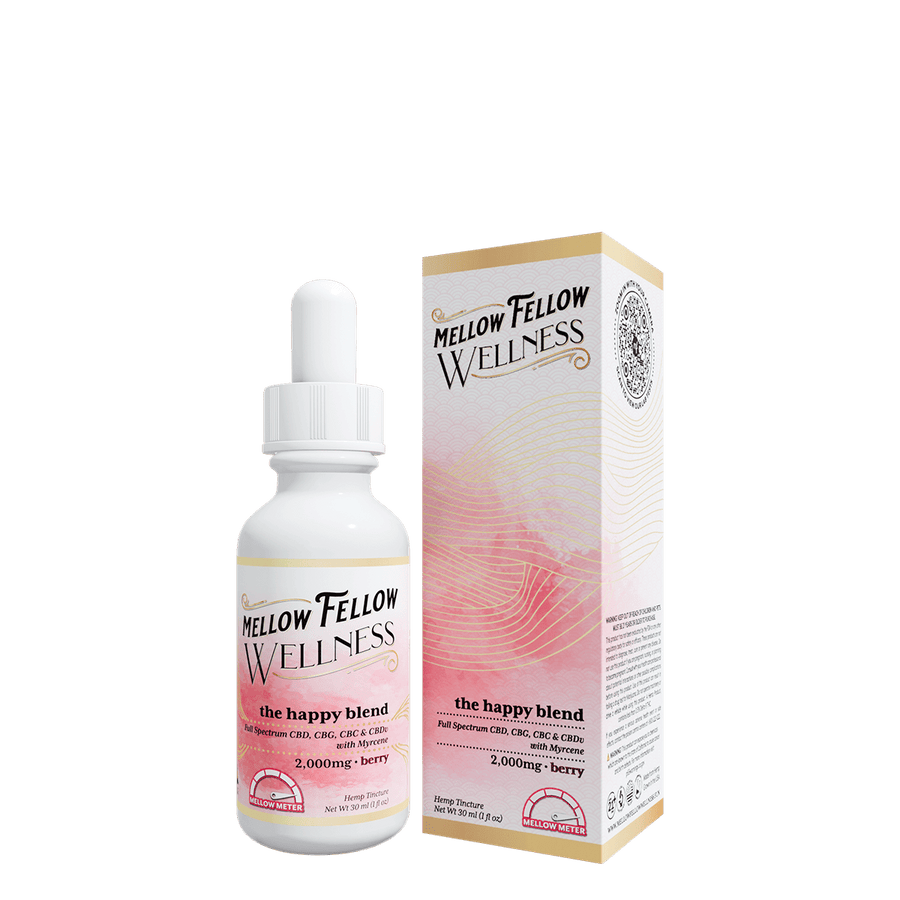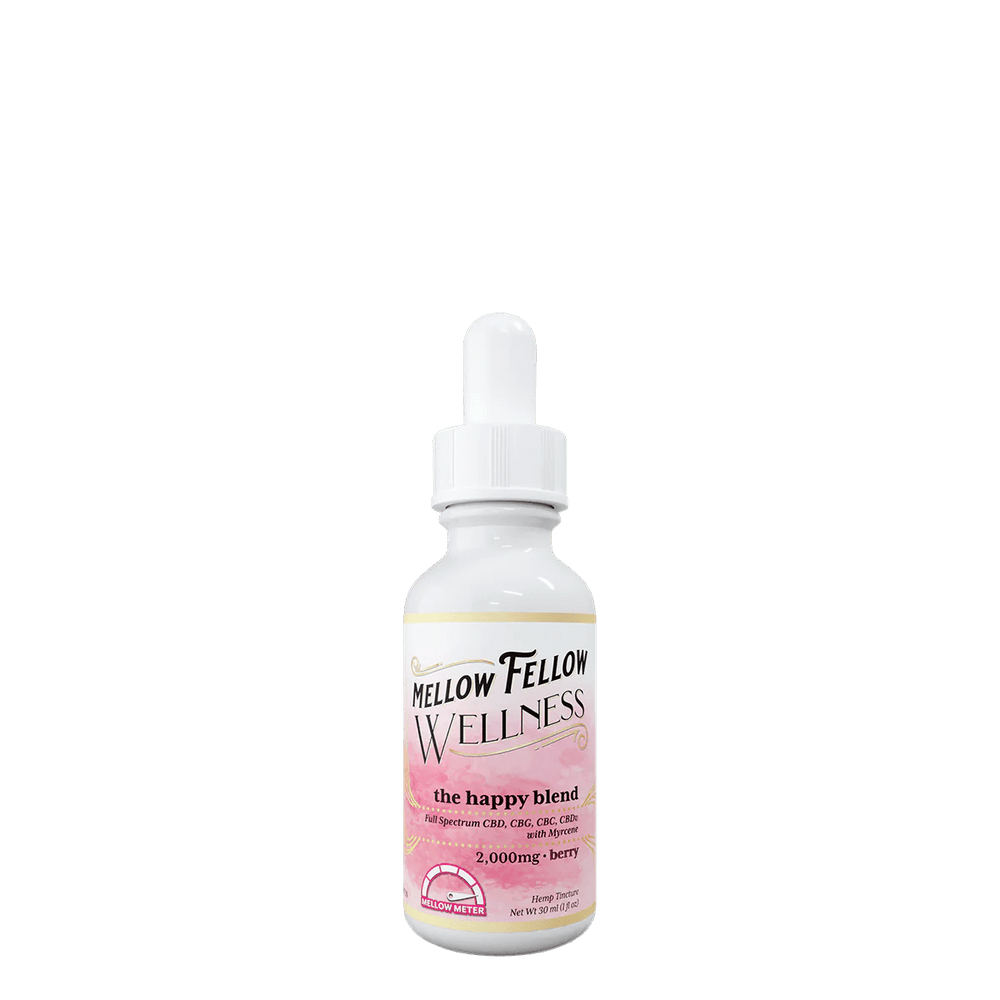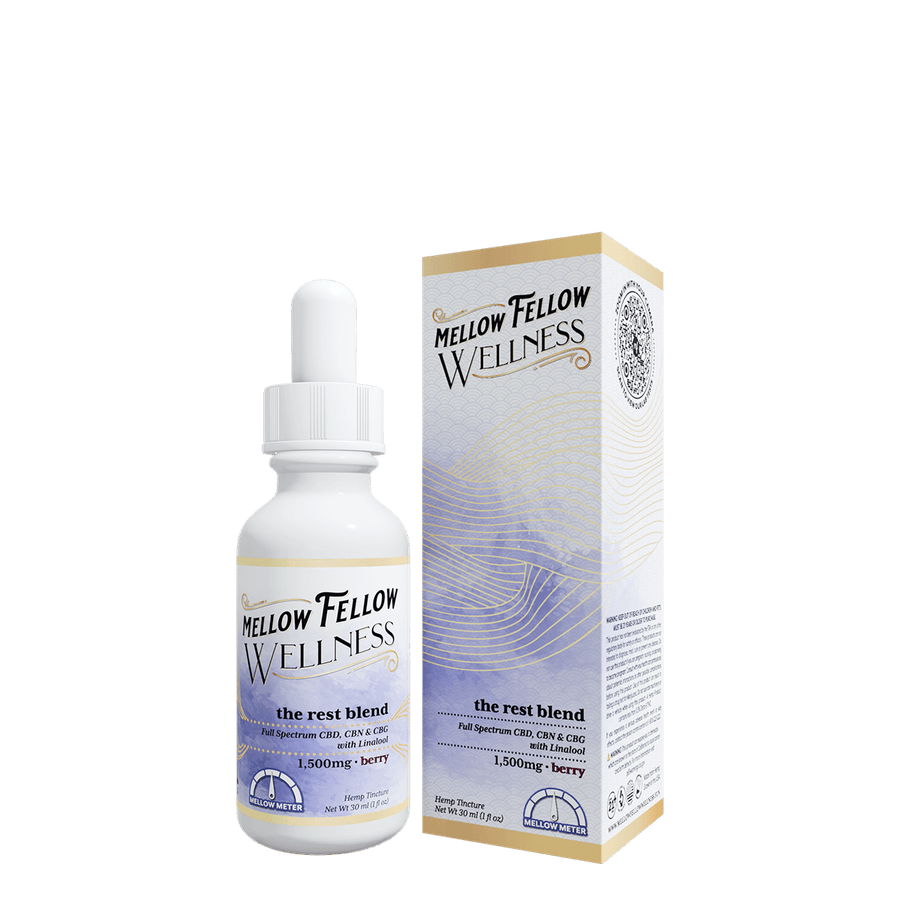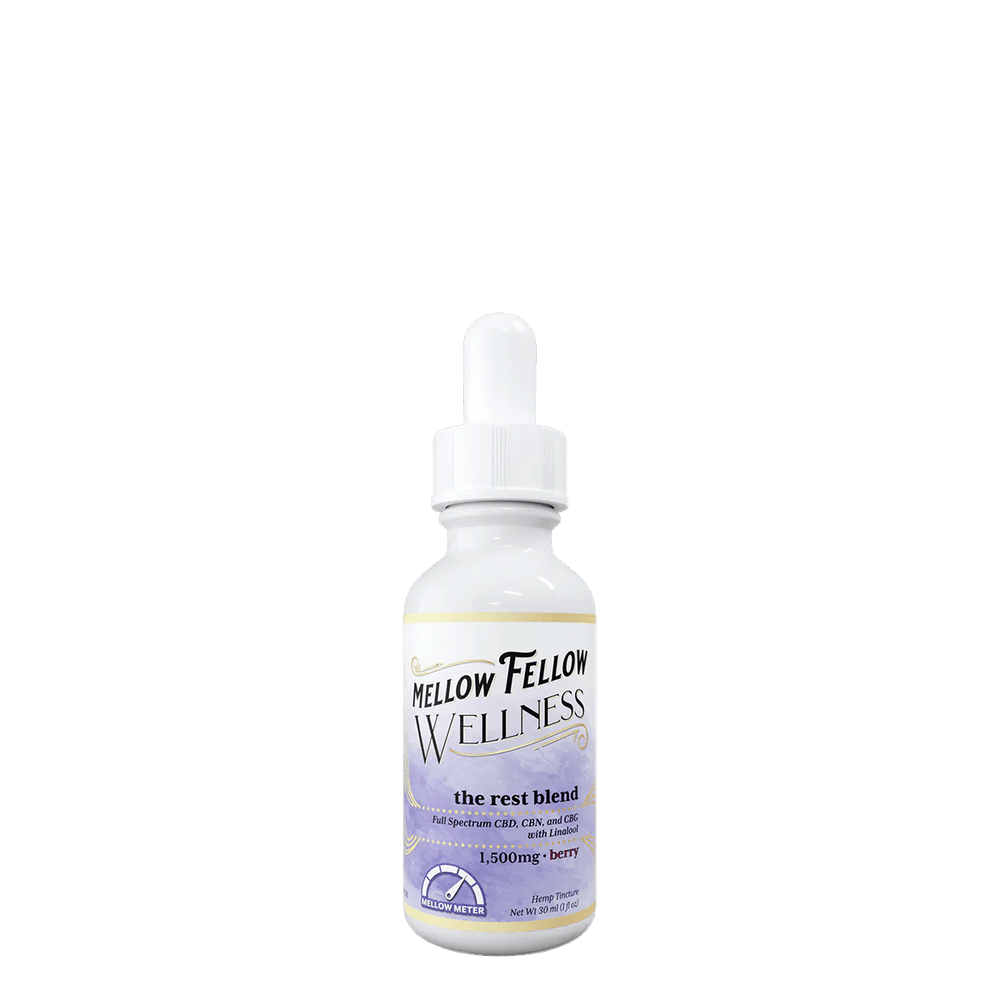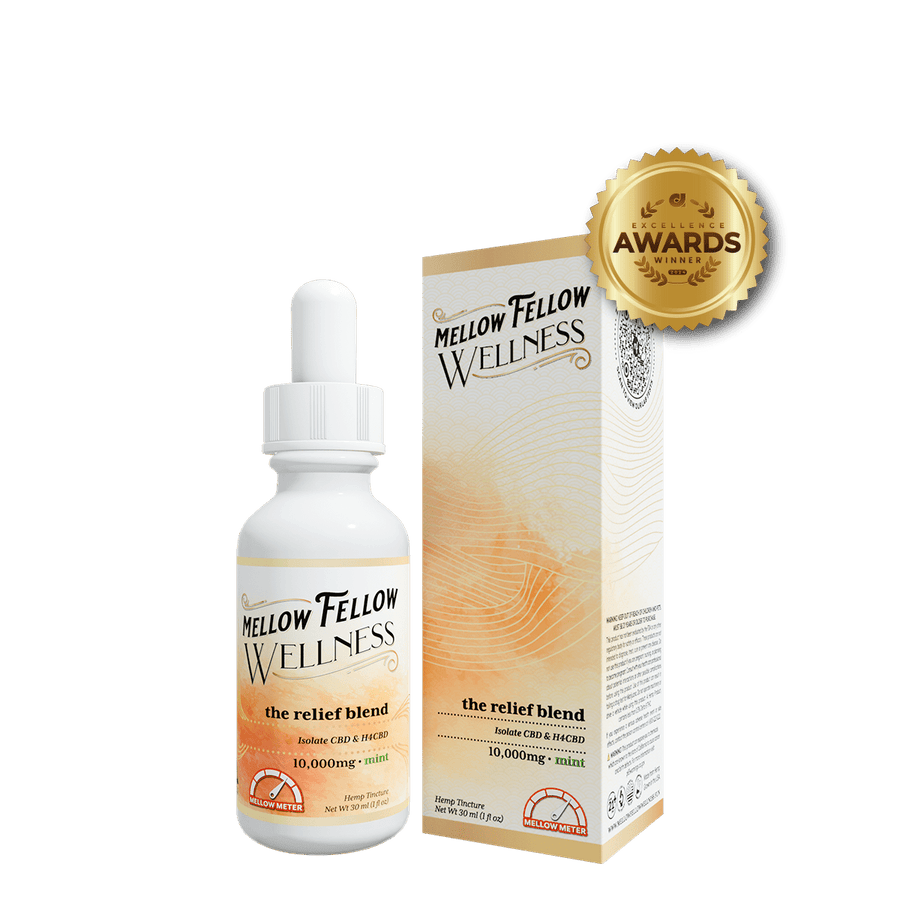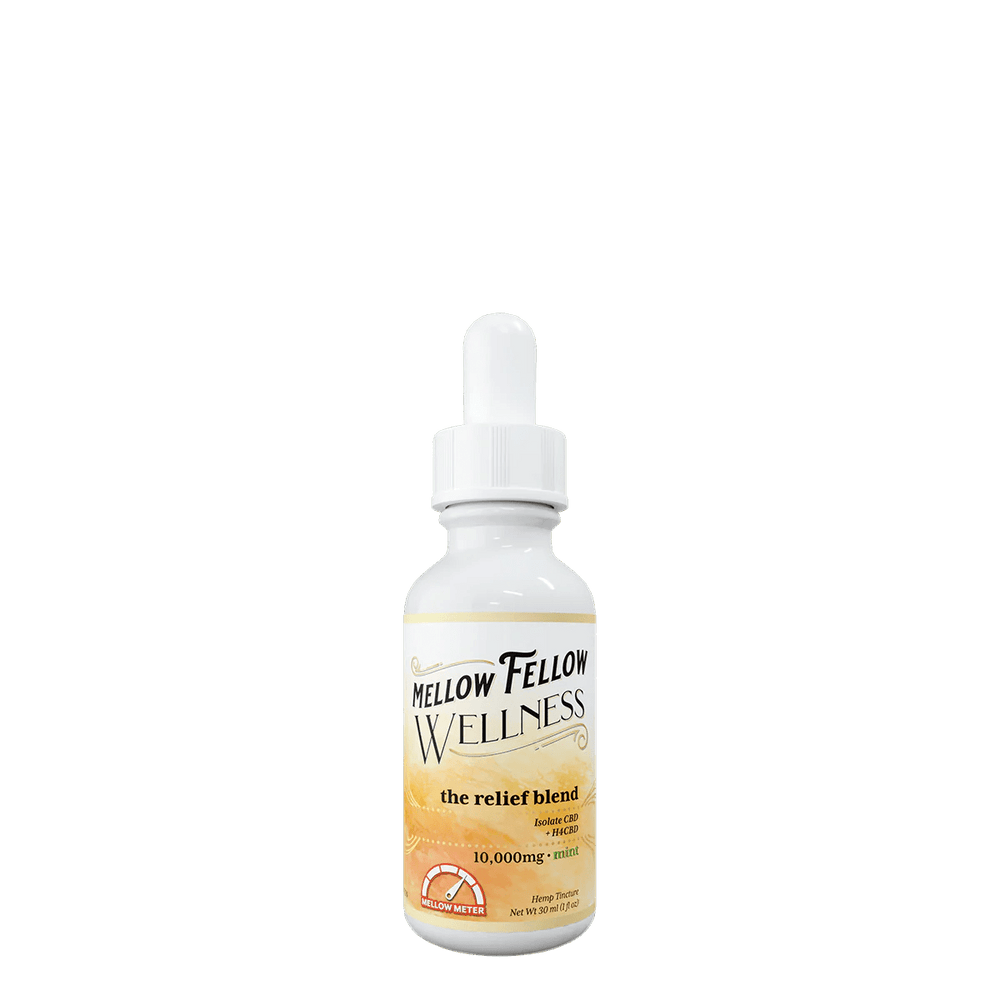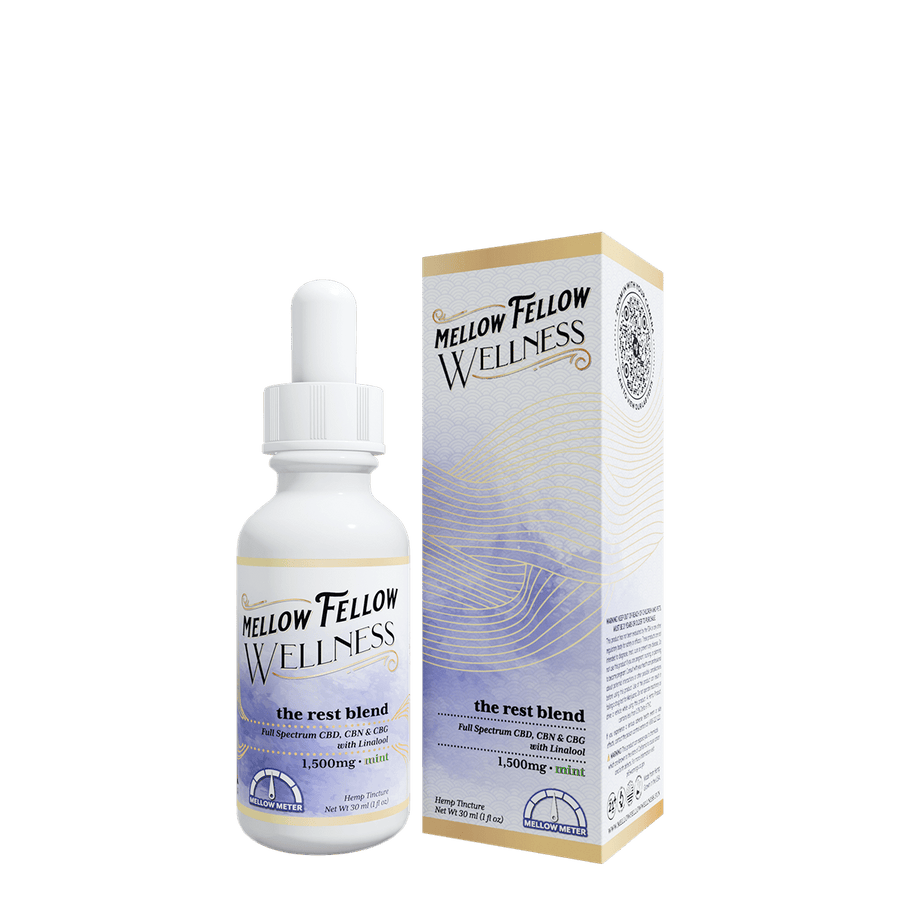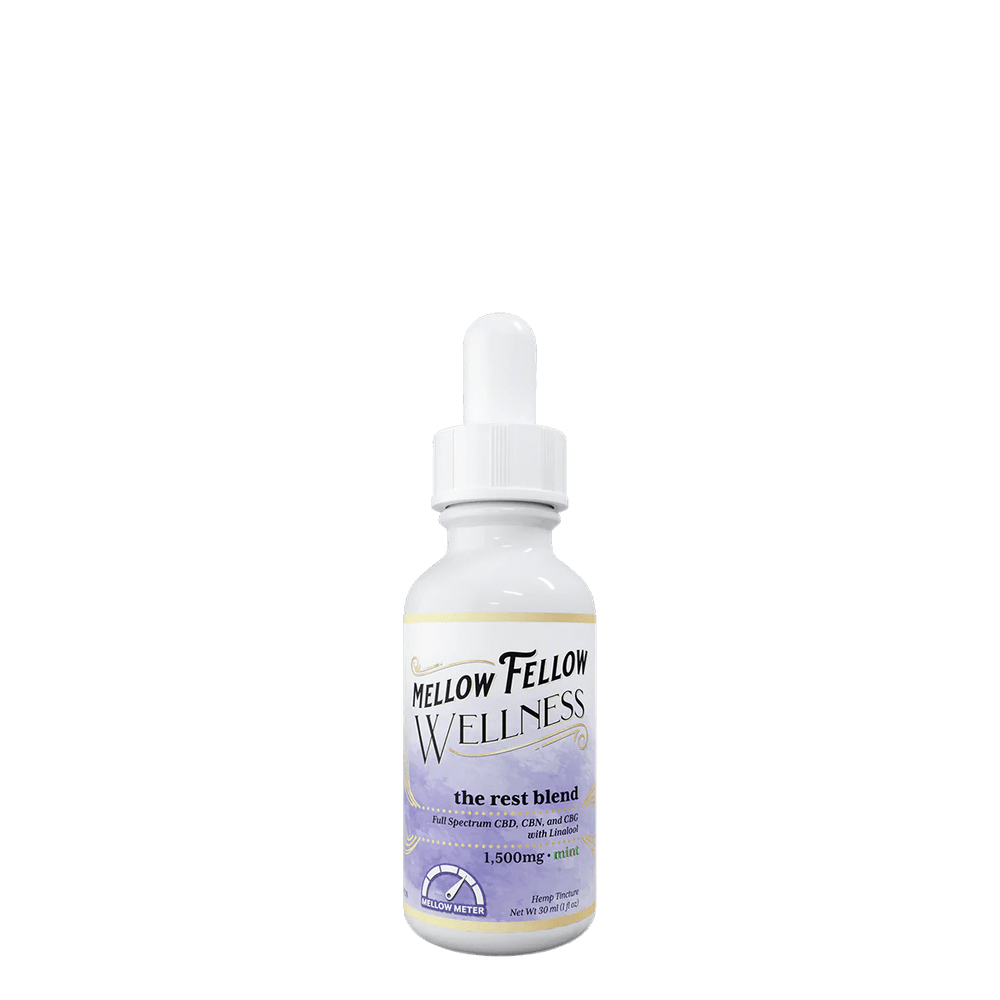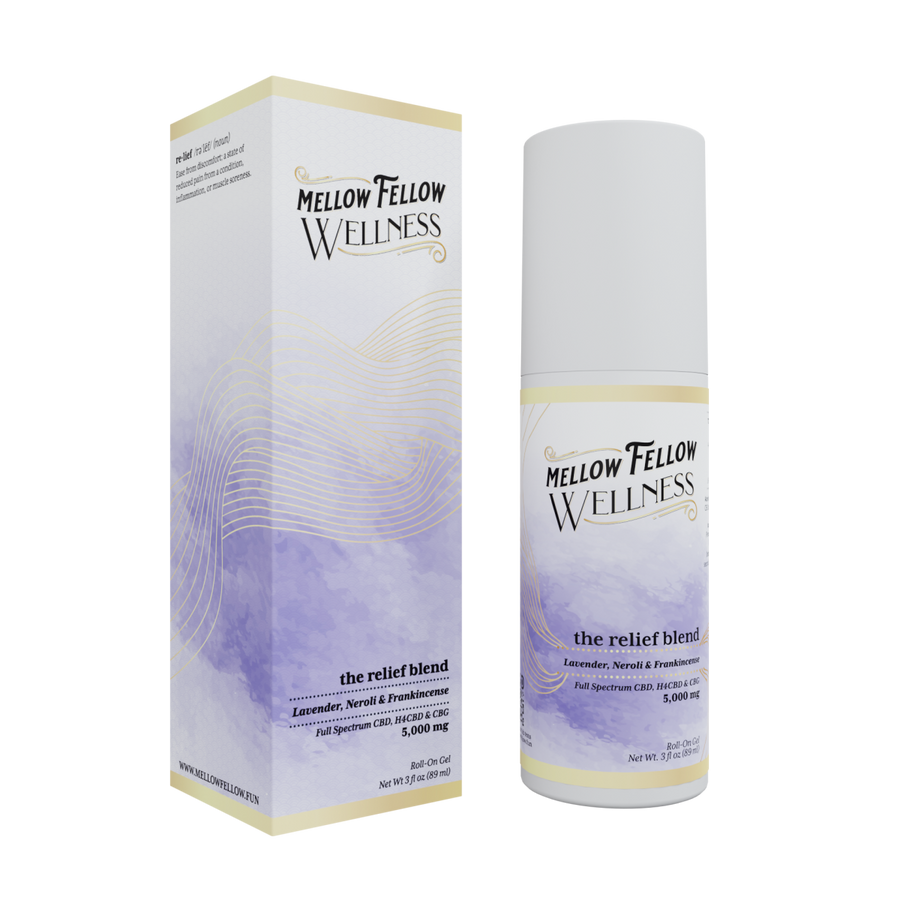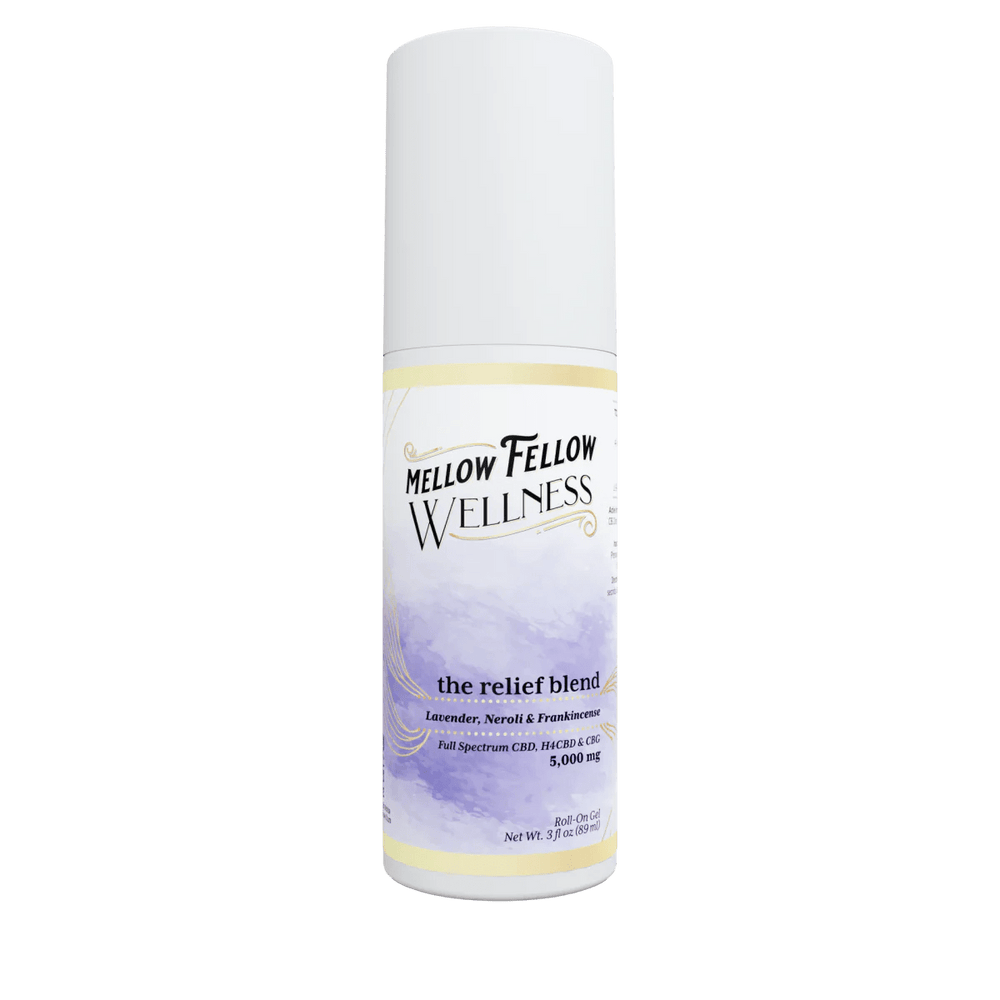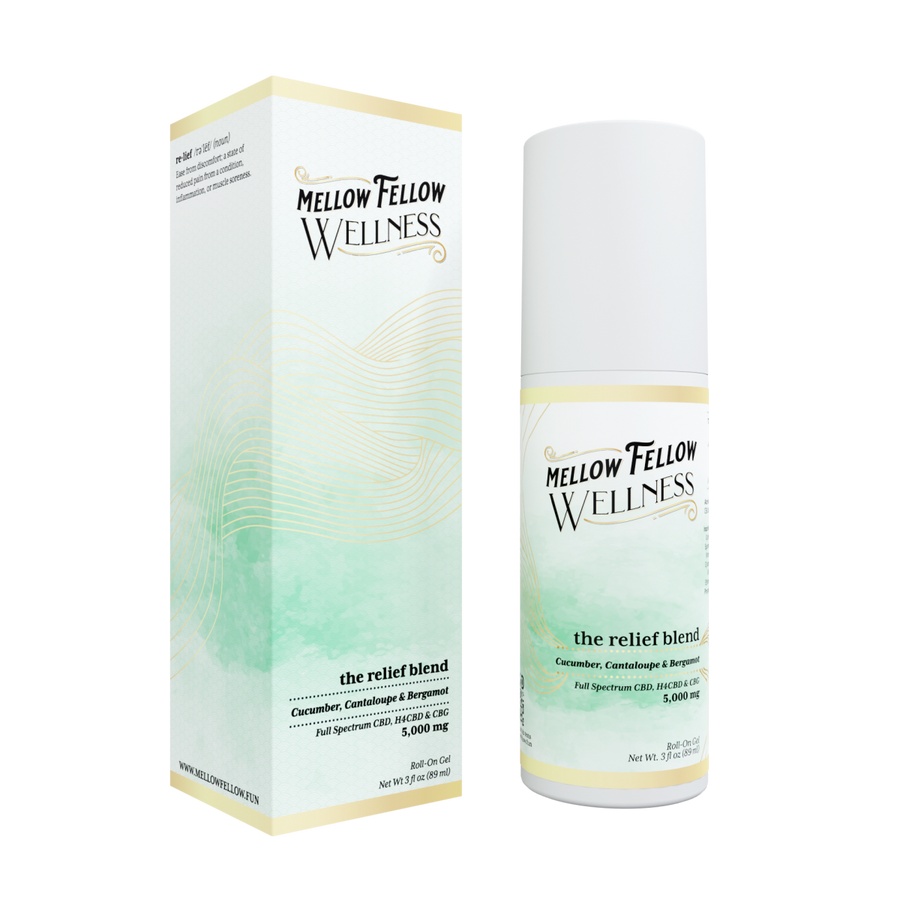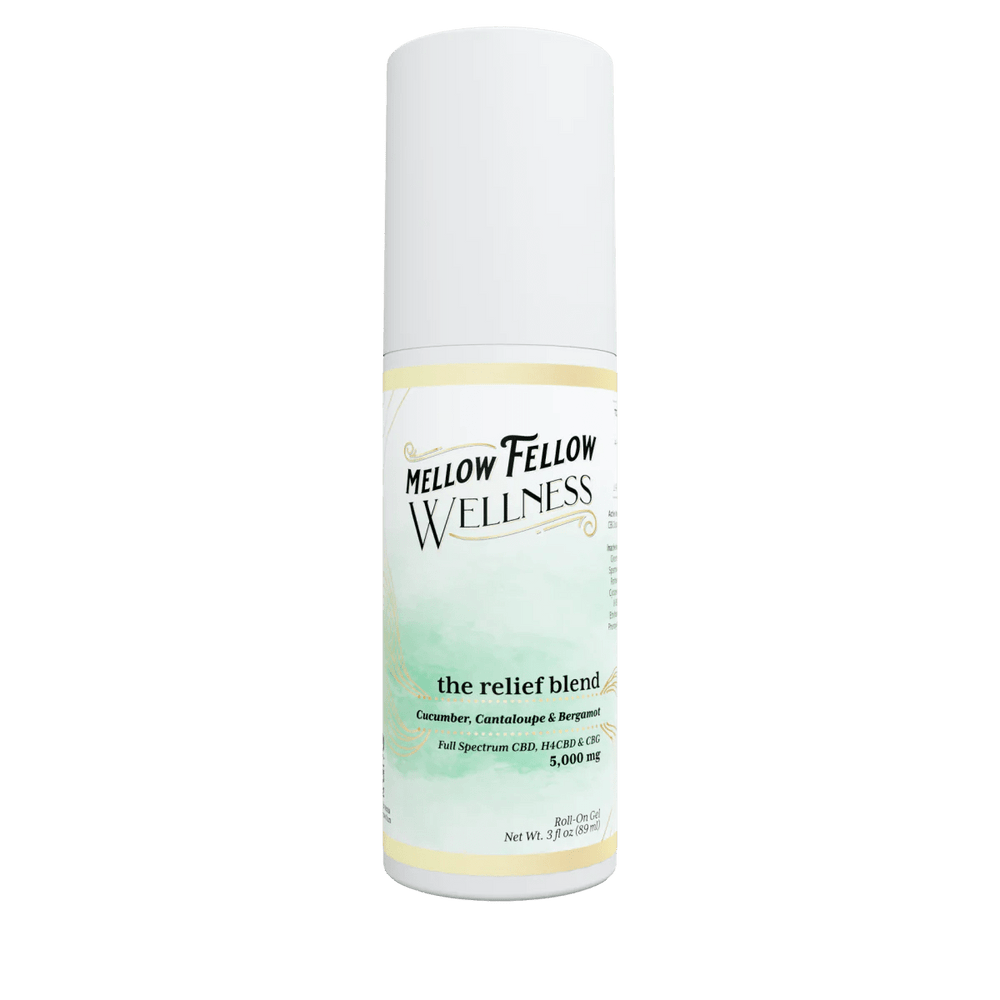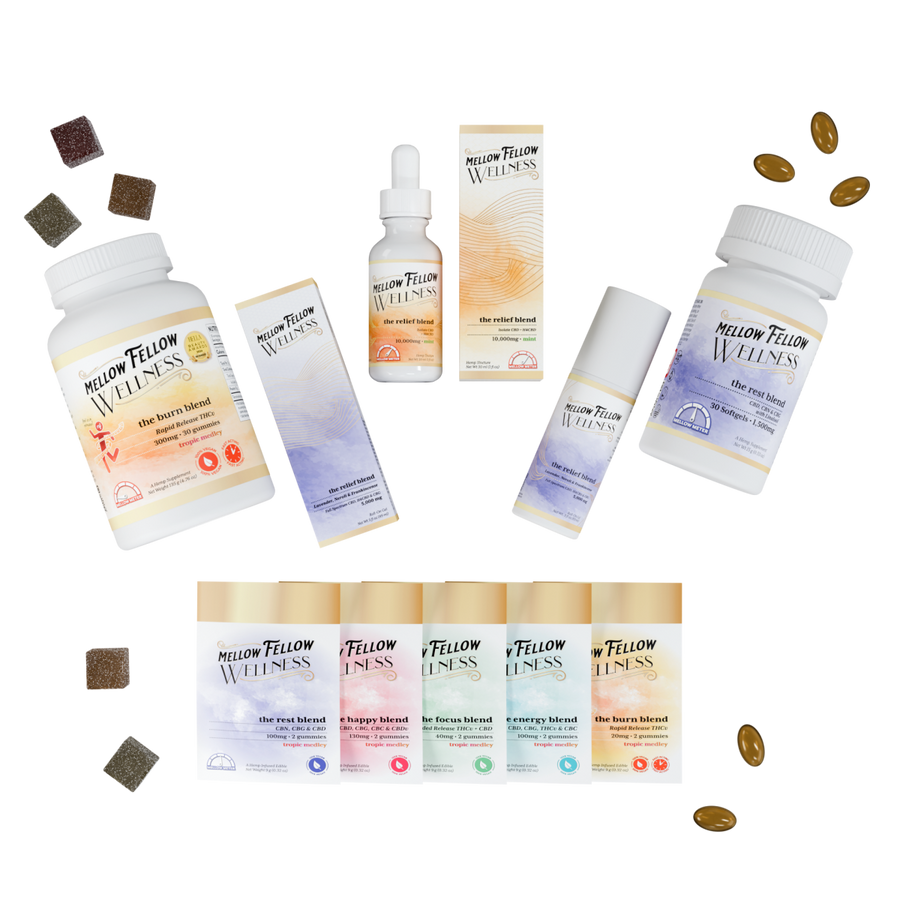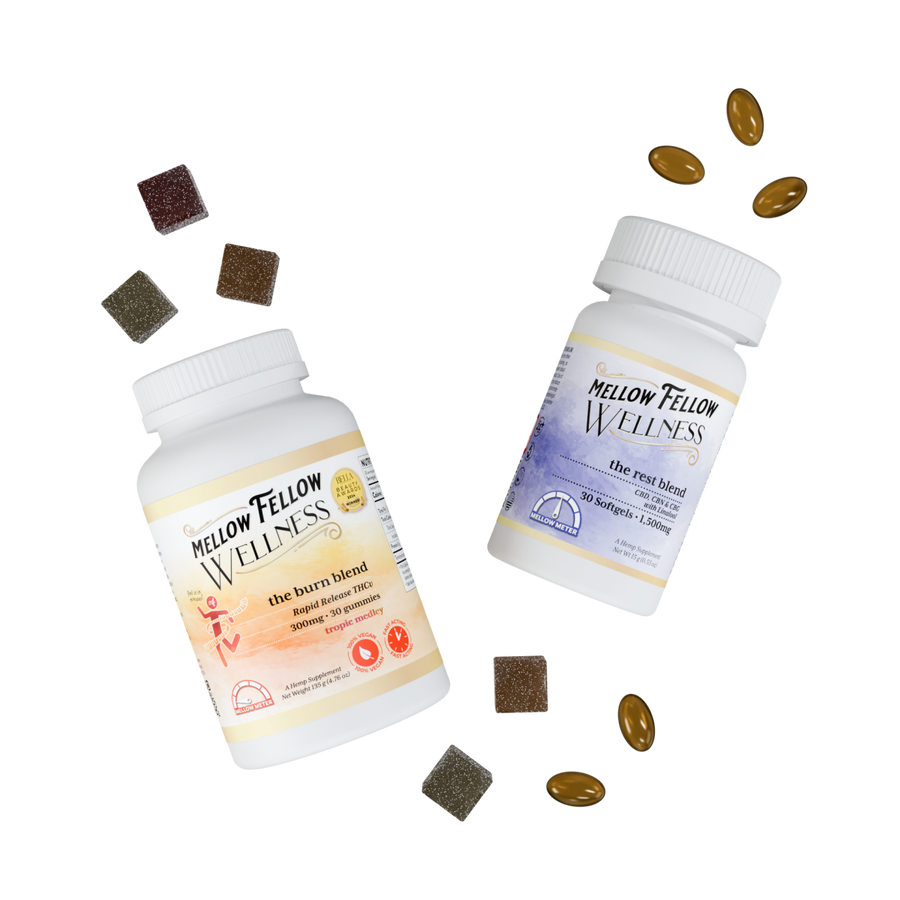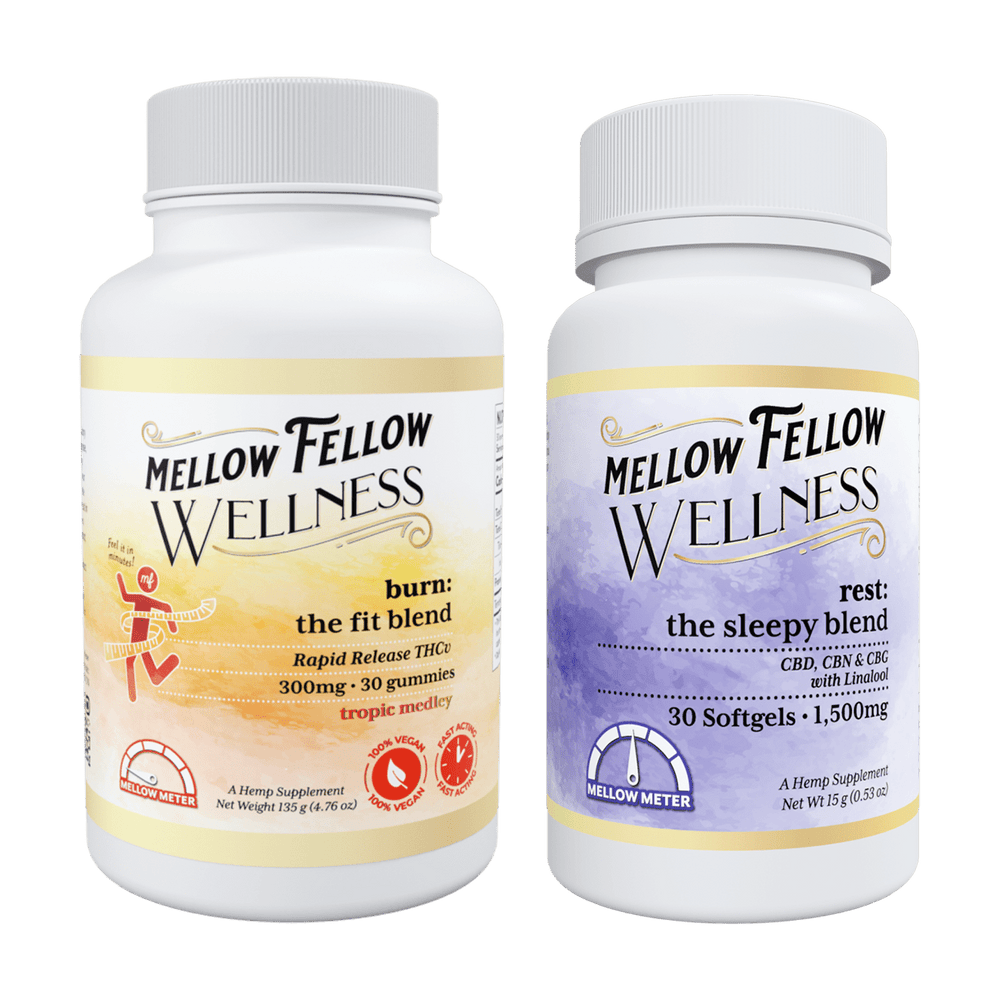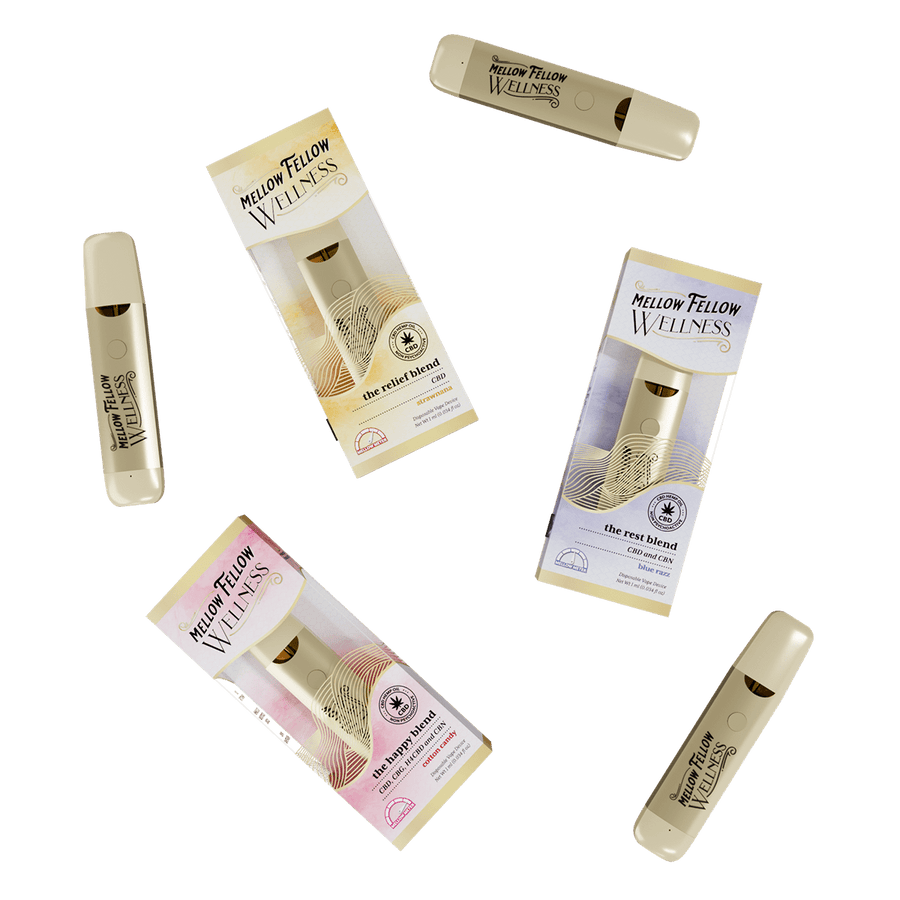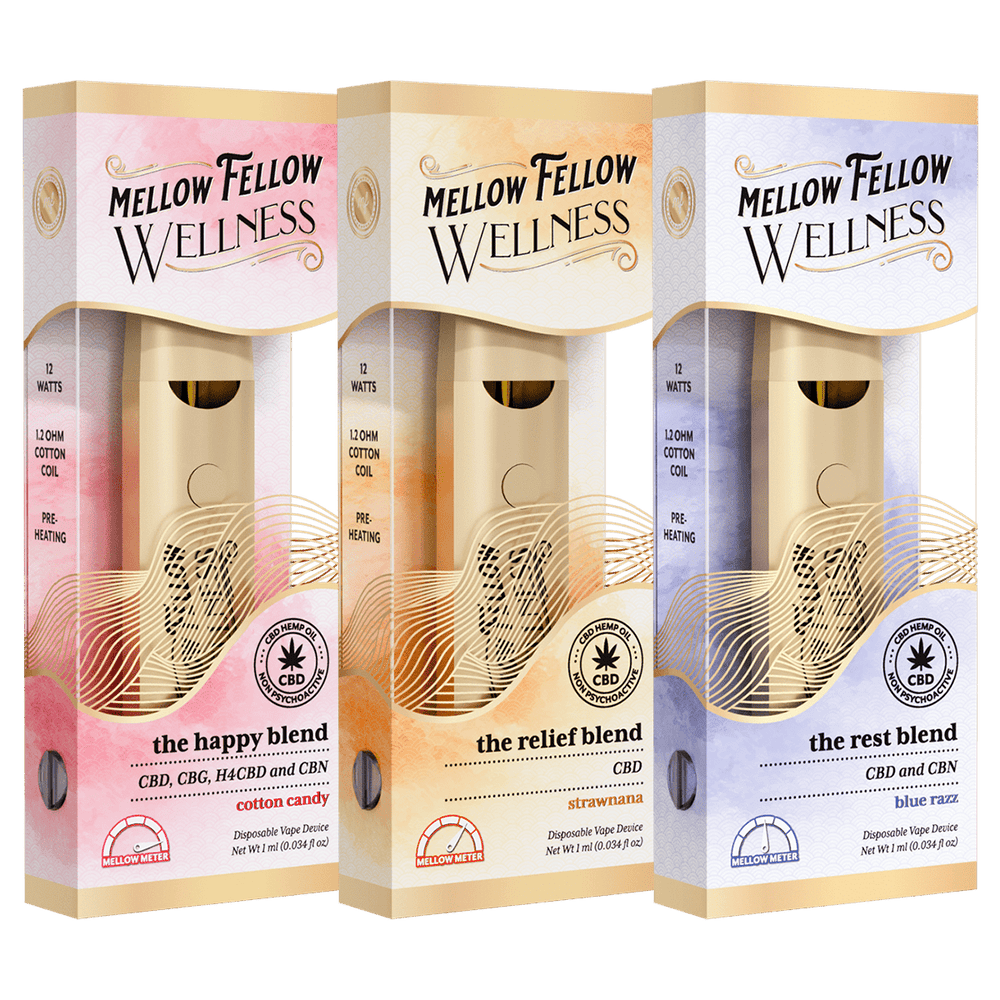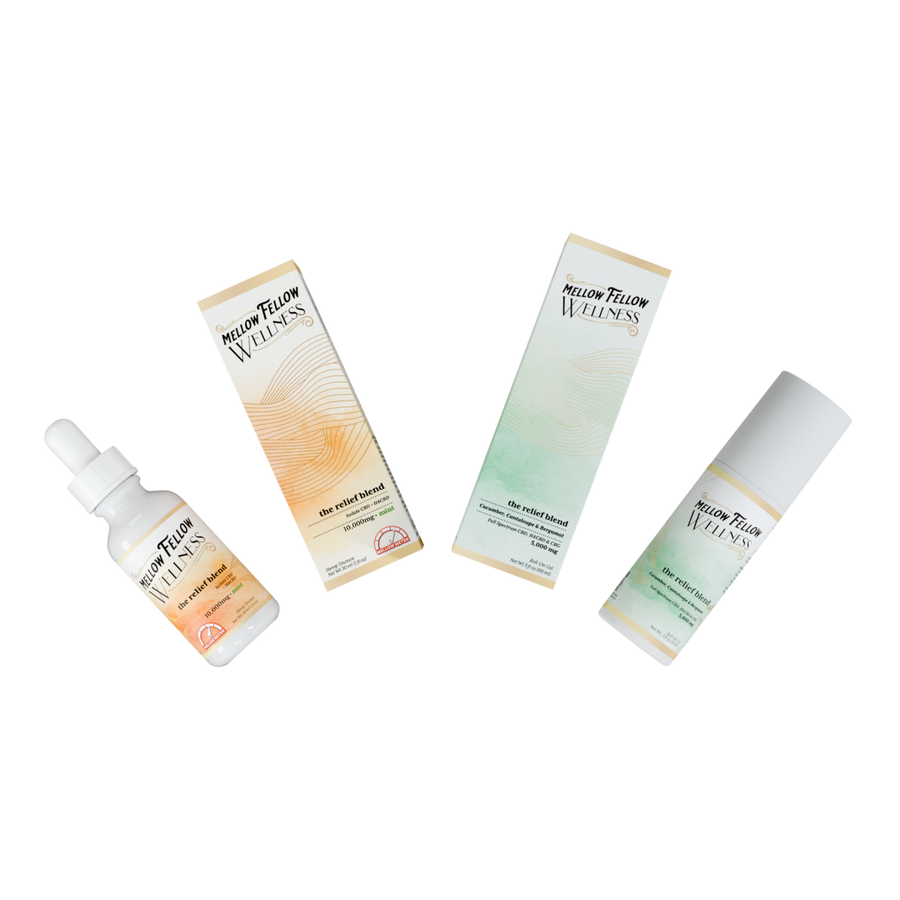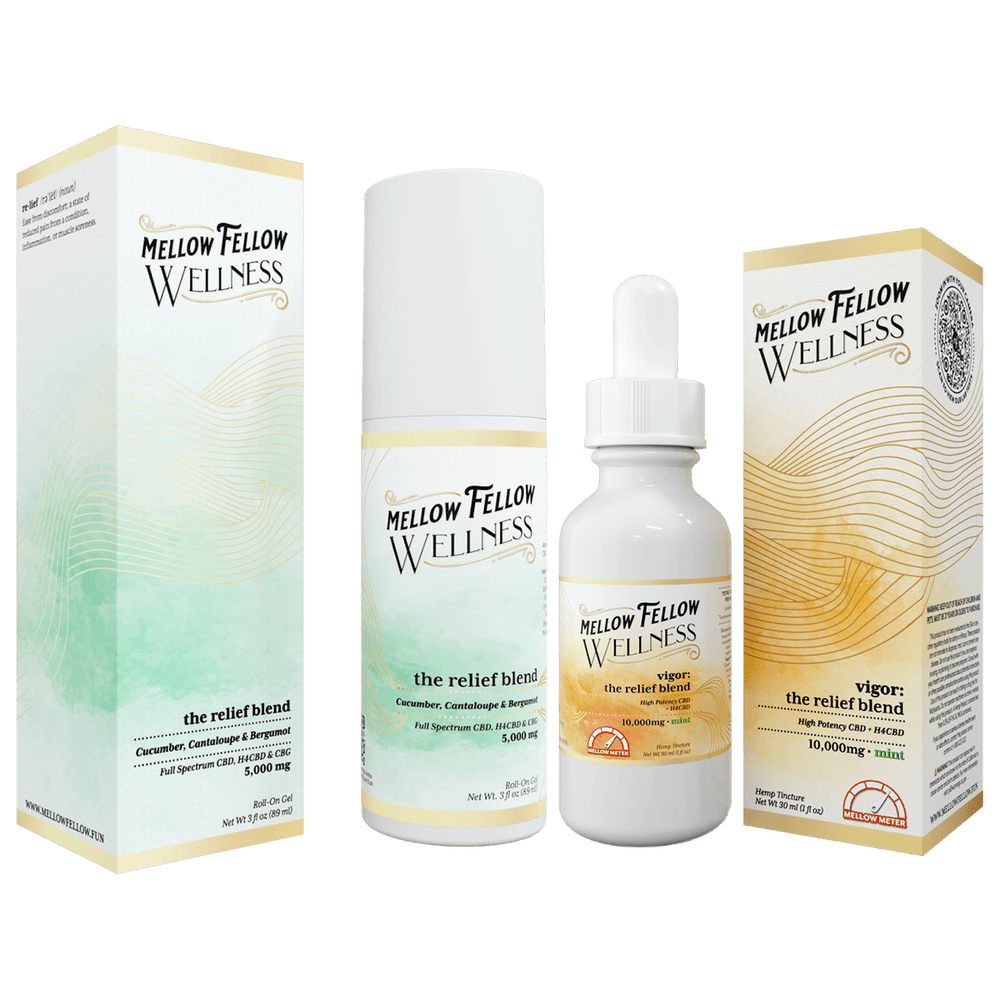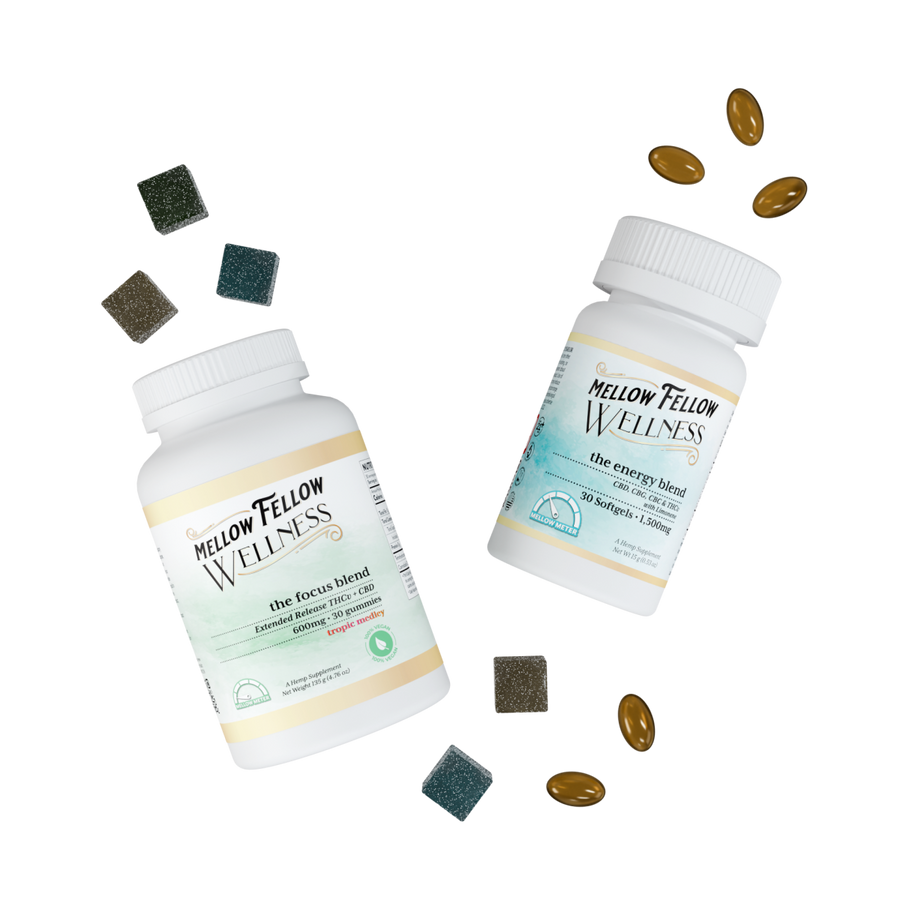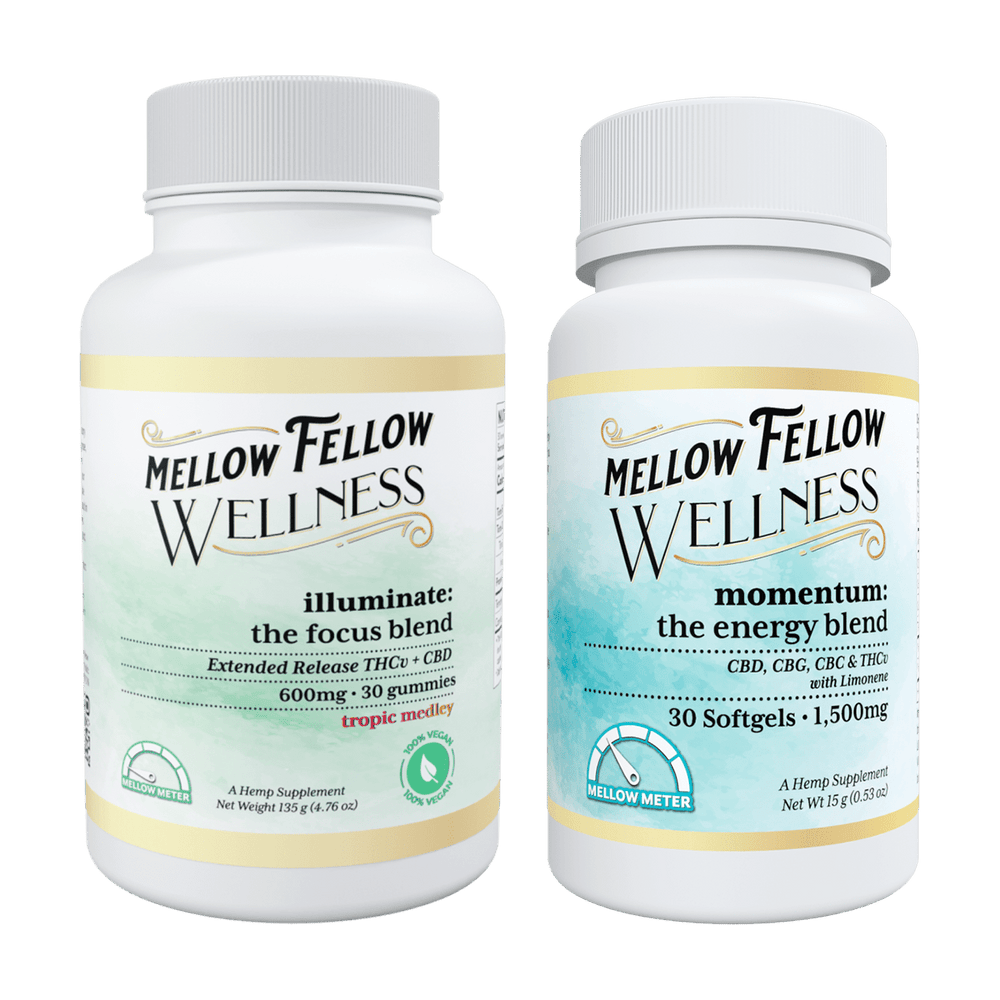CBD, or cannabidiol, occurs naturally in cannabis and hemp plants. Unlike its relative THC (delta-9-tetrahydrocannabinol), CBD isn't psychoactive—it won't give you that euphoric 'high.' Instead, it interacts with the body's endocannabinoid system, which regulates pain, mood, and sleep, among other processes. CBD has developed a reputation of use for possible therapeutic benefits when used in many wellness products. You'll find it in oils, gummies, creams, and capsules—all designed to support overall well-being.
New experience-based blends for those who seek a milder mellow. Featuring cannabinoids like CBD, THCv, & CBG, each of these distinct non-intoxicating blends are meticulously designed to cater to your unique needs and elevate your CBD experience.
read moreWellness Disposable Vapes
View allWellness Gummies
View allWellness Softgels
View allWellness Tinctures
View allWellness Roll-ons
View allWellness Bundles
View allWhat Other Customers are Saying
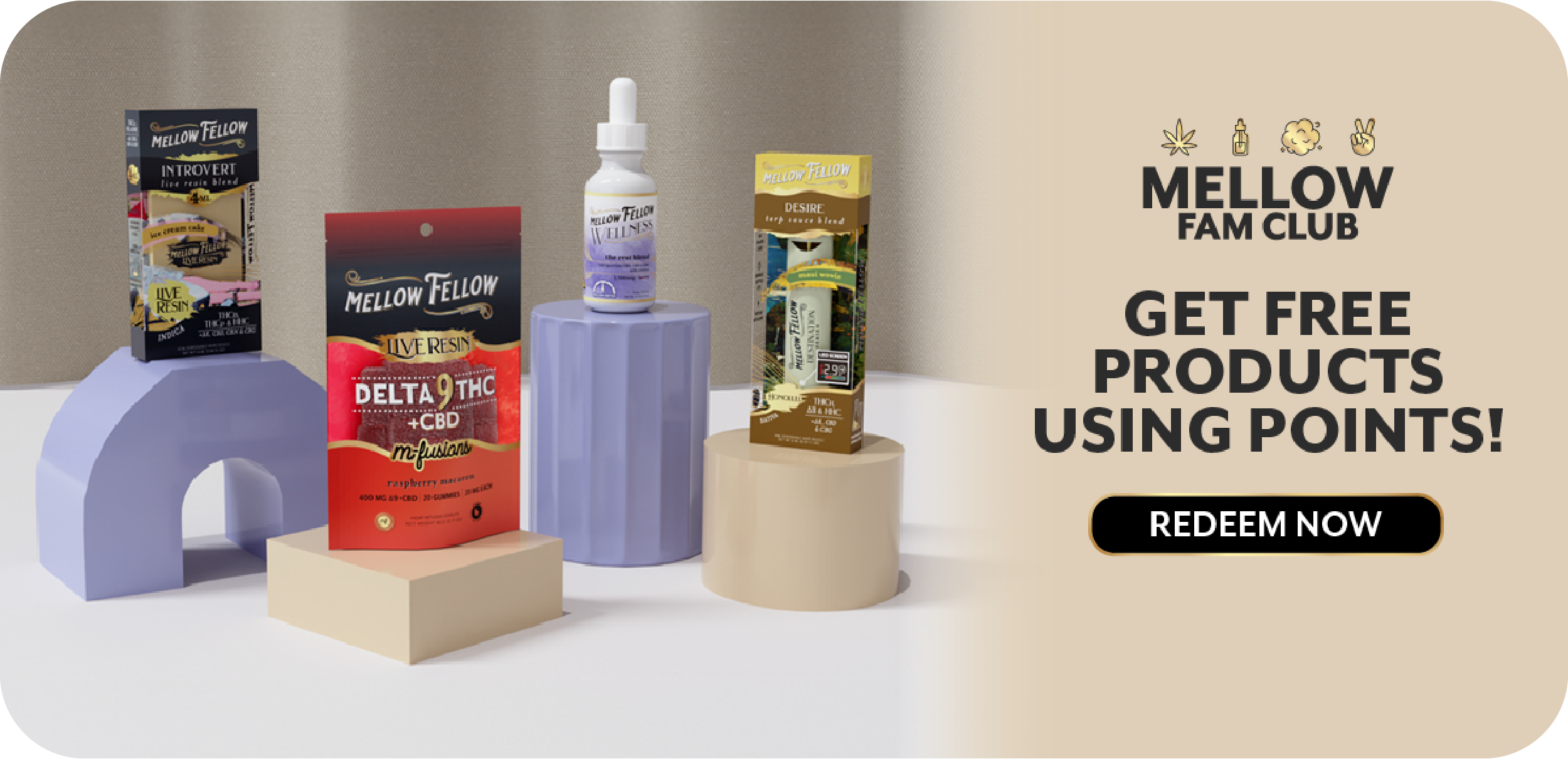
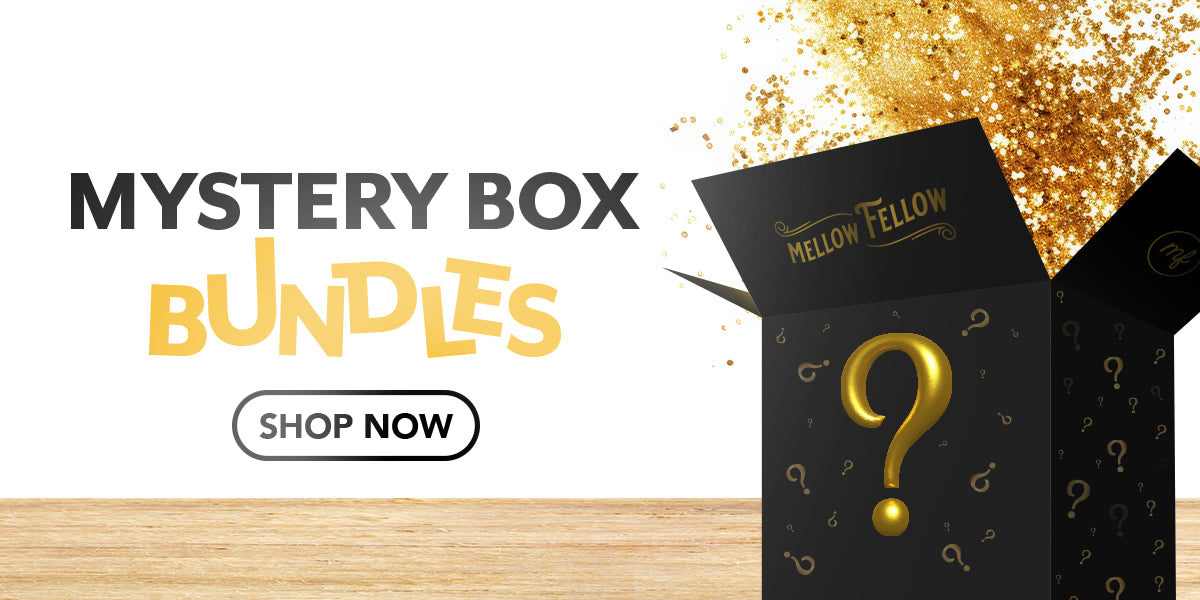
CBD FAQs
What Is CBD?
What Does CBD Feel Like?
Unlike THC, CBD doesn’t get you “high” or change your mental state. Most people report feeling calm, relaxed or discomfort free, results varying. Some may feel subtle effects, others may not feel anything. It is non intoxicating and won’t impair daily function or work. People often use CBD to manage stress, sleep or discomfort. It's recommended to start with a low dose and gradually increase to find the right balance for your body.
How Long Does It Take For CBD To Start Working?
How quickly CBD works can depend on your metabolism and how you take it. If you use an oil or tincture under your tongue, you might feel the effects in 15 to 45 minutes. For topicals like creams and lotions, you might notice effects at around 15 to 30 minutes in, but these are usually localized to the area you applied it to. Edibles and capsules typically take a bit longer, usually between 30 minutes to 2 hours. These ranges can also vary person to person depending on other factors like age, dose, and metabolism.
Does CBD Have Health Benefits?
While research is ongoing CBD has shown promise in several areas of health and wellness. Some potential benefits include reducing anxiety and improving sleep. It may also help alleviate chronic pain. CBD has even been approved by the FDA as prescription medication Epidiolex for certain types of seizures. While CBD seems promising, it's always a good idea to chat with a healthcare provider to see if it's a good fit for you, especially if you're taking other medications.
Is CBD Legal?
Yes, CBD is legal in the US. At least federally, it is provided that it's derived from hemp and contains less than 0.3% Delta 9 THC. This was made possible by virtue of the 2018 Farm Bill, which legalized hemp with its derivative products. State laws and regulations regarding CBD do differ state to state around the country. We recommend that before purchasing and consuming these products, you should look into what the local laws are regarding CBD in your state.
Does CBD Have Interactions With Other Drugs?
CBD may interact with a variety of drugs, either changing their effects or causing side effects. In the main, it will interact with the medicines that get processed by the liver cytochrome P450 enzyme system, through which most of the common medications are metabolized. This would result in increased or decreased blood concentrations of those drugs due to CBD, leading to decreased efficacy or increased side effects.
Some of the notable interactions include blood thinners such as warfarin, medications for heart rhythm, thyroid medicines like levothyroxine, and seizure medications like clobazam, lamotrigine, and valproate. The blood levels of the drugs in an immunosuppressive class—that is, those agents that can suppress either T-cells and further follow mechanisms of immune system function like cyclosporine and tacrolimus—will be increased, leading to blood levels and toxic side effects. It can also increase sedative properties in drugs causing drowsiness, which include antihistamines, benzodiazepines, and opioids. Given these potential interactions, it is essential to consult with a healthcare professional or pharmacist about using CBD if you are using any medications or have underlying health conditions.
CBG FAQs
What is CBG?
CBG, often referred to by experts as “the mother of all cannabinoids,” is the precursor from which other cannabinoids, including CBD, are derived. This transformation occurs as cannabigerolic acid (CBGA), an acidic form of CBG, converts into other cannabinoids as the cannabis plant matures.
Young cannabis plants are typically used to source CBG. As the plant ripens, CBG levels diminish, while THC and CBD levels increase. According to Dr. Sexton, young cannabis plants contain CBGA, which naturally converts into CBDA and THCA as the plant grows. These compounds can later be converted into CBD and THC through heat activation.
CBG is available in various forms, including tinctures, gummies, capsules, and topical creams and lotions. It is often combined with CBD to enhance its effects. As put by Fraser Smith, a naturopathic doctor and assistant dean at the National University of Health Services, notes that this combination can help decrease inflammation and pain, providing complementary benefits.
Does CBG Get You High?
No, CBG will not get you high. While THC is psychoactive, tending to have an invigorating or euphoric effect, CBG is not at all intoxicating. It doesn’t produce a high or alter one’s state of mind in any way that impairs normal functioning. Instead, CBG provides a calming feeling of being relaxed and focused which is why it is suited for anyone seeking relaxation without the intoxication effects associated with THC.
What Does CBG Feel Like?
CBG provides a sense of calm and clarity without the intoxicating effects associated with THC. Many users report feeling relaxed yet alert, making it an excellent choice for anyone seeking mental focus and a soothing experience.
CBG works by binding to both cannabinoid receptors in the body, where it is believed to enhance the function of anandamide. Anandamide is a neurotransmitter that plays a crucial role in enhancing pleasure and motivation, regulating appetite and sleep, and alleviating pain. By boosting anandamide’s effectiveness, CBG helps to create a balanced and harmonious state of well-being.
Many users reported that the CBG feeling is like a soft, relaxation wave washing off the stress, yet paired with high alertness and focus. This is an especially unique combination that gives CBG special appeal to people desiring productivity and clarity while keeping up with everyday stressors.
Does CBG Have Health Benefits?
Yes, research has also shown that CBG is effective in offering a number of potential health benefits, which include reducing inflammation, alleviating pain, and generally improving health. In addition, CBG hosts the neuroprotective effect on the brain, hence possibly supporting brain health and having an impact in the improvement of cognitive function. Studies indicate that CBG might intervene in mood enhancement and mental clarity making it effective in products like Elevate: The Happy Blend. As with any supplement or wellness product, it would be a good idea to consult a healthcare professional before incorporating any CBG or cannabinoid into your regimen for health purposes.
CBD vs CBG: What’s the Difference?
CBD and CBG share many similarities including the following:
- Both are cannabinoids that act on the endocannabinoid system
- Both are non-intoxicating, meaning the don’t induce a high
- Each one is said to possibly counteract THC’s psychoactive effects???
CBD and CBG may seem the same at first glance, but they each have unique properties. CBD is said to have calming effects, with potential to alleviate anxiety and chronic pain. CBG, on the other hand, is often referred to as “the mother of all cannabinoids” because it serves as a precursor to other cannabinoids. It’s particularly noted for its potential to enhance focus, reduce inflammation, and provide neuroprotective benefits. By combining CBD and CBG, this creates a more comprehensive wellness package between the two cannabinoids that can complement one another's strengths.
Is CBG Legal?
The short answer is: Yes, CBG is generally legal at the federal level. In the United States CBG derived from hemp and contains less than 0.3% Delta 9 THC is legal under the 2018 Farm Bill. While CBG is federally legal, state laws can vary. Some states might have additional restrictions, so it's always a good idea to check your local laws. If it’s legal in your state, be sure to look for CBG products with clear labeling and third-party lab testing results. These should verify the THC content and confirm that the CBG comes from approved hemp sources.
CBN FAQs
What is CBN?
CBN, or cannabinol, is one of the naturally occurring compounds in cannabis. It's created from the aging and breakdown process of THC. Unlike THC, CBN itself is non-psychoactive, in other words CBN doesn’t get you high. This compound is said to have potential calming and soothing effects that have gained it traction as something that could help people looking for relaxation and restful sleep.
Is CBN Legal?
Yes, CBN is federally legal when derived from hemp plants given that it contains less than 0.3% Delta 9 THC. This aligns with the guidelines set by the 2018 Farm Bill in the United States. However, regulations can vary state to state, so it's always a good idea to check your local laws to ensure compliance before purchasing CBN.
Will CBN Get You High?
No, CBN will not get you high. Unlike THC, CBN is non-psychoactive, which means that it doesn't produce the euphoric effects commonly associated with cannabis. Instead, CBN is celebrated for its potential calming and relaxing effects without the high. Many turn to CBN to relax and unwind without altering their mental state. This is very good for those who want to be relaxed by using cannabis without inebriation. It is particularly associated with nightly use or can be used to help peacefully ease one into night's sleep.
Does CBN Make You Sleepy?
CBN is associated with the promotion of sleep and relaxation. Many people find that CBN may be conducive to getting a restful night's sleep by being able to wind down and slip into relaxation. But as always, the best way is to see how your body individually responds.
It forms the main reason why it is so popular for people seeking to optimize their nightly routines naturally. But individual responses might be different, so it’s best to see how your body responds. As always, consult with a healthcare professional if you have any concerns or are taking other medications.
How Much CBN For Sleep?
Finding the right CBN dosage for sleep can vary from person to person. As with any cannabinoid, we recommend starting with a low dose and adjusting as needed can help you find the optimal amount for your personal needs.
A good starting point is to begin with a low dose, such as 5-10 mg, and gradually increase as needed. It's always best to consult with a healthcare professional for personalized advice, especially if you're new to using CBN. If you’re new to CBN we recommend you start with half a Rest Blend gummy and wait to see how it affects you before.
Does CBN Show On A Drug Test?
Standard drug tests do not typically screen for CBN. However, because CBN is derived from cannabis, there's a slight possibility it could show up on a urinalysis or lead to a false positive for THC, especially with very high doses or when taken consistently. If you're concerned about CBN with regards to drug tests, it's best to err on the side of caution or speak with the testing facility about their specific procedures.
THCv FAQs
What is THCv?
THCv, or Tetrahydrocannabivarin, is a cannabinoid naturally occurring in cannabis and hemp plants. THCv doesn't induce the traditional "high" associated with cannabis consumption. Instead, it is recognized for its ability to promote alertness, motivation, and energy, making it a popular choice for daytime use. Unlike many cannabinoids, THCv is unique in that it has appetite-suppressing effects, earning it the nickname "diet weed" among users. Products containing THCv range from disposable vapes and gummies to vape cartridges and tinctures, offering various consumption options.
Does THCv Get You High?
No, THCv does not induce the traditional "high" associated with cannabis consumption. Unlike THC, which is known for its psychoactive effects, THCv does not produce the same euphoric or altered state of consciousness. Instead, THCv is often explored for its unique properties:
- Appetite suppression: Unlike THC, which often increases appetite, THCv may help reduce food cravings by lowering appetite. You can find THCv in products like The Burn Blend, designed to assist with appetite control and managing weight.
- Energy boost: Many THCv consumers report feeling more alert and energized when using this cannabinoid. THCv presents as a great alternative to coffee or pre workout. In Momentum: The Energy Blend, it is often used to support health and fitness goals.
- Potential cognitive enhancement: Early research suggests THCv might improve focus and clarity making it a great addition to The Focus Blend, Illuminate.
Is THCv legal?
Thanks to the 2018 Farm Bill, THCv is permitted at the federal level. The bill specifies that hemp-derived products with less than 0.3% Delta 9 THC are allowed for production and sale. However, despite its federal legality, THCv may not be legal in all states. It is crucial to review your state’s regulations, as they are subject to change.
Where To Buy THCv?
If THCv is legal in your state, you can find it at local smoke shops or conveniently purchase it online. When buying THCv, make sure to verify that the products come with third-party lab results that test for both potency and contaminants, such as heavy metals. Mellow Fellow emphasizes top-notch quality and safety, offering scannable QR codes on their packaging to provide easy access to their Certificates of Analysis (COAs).




